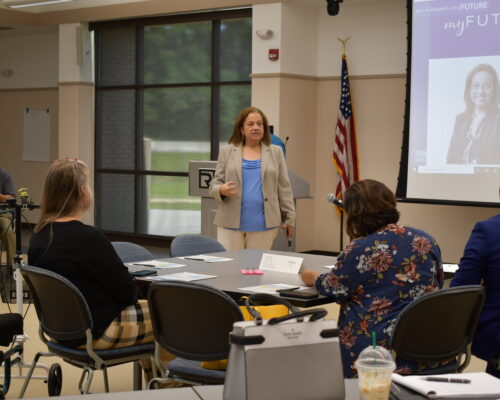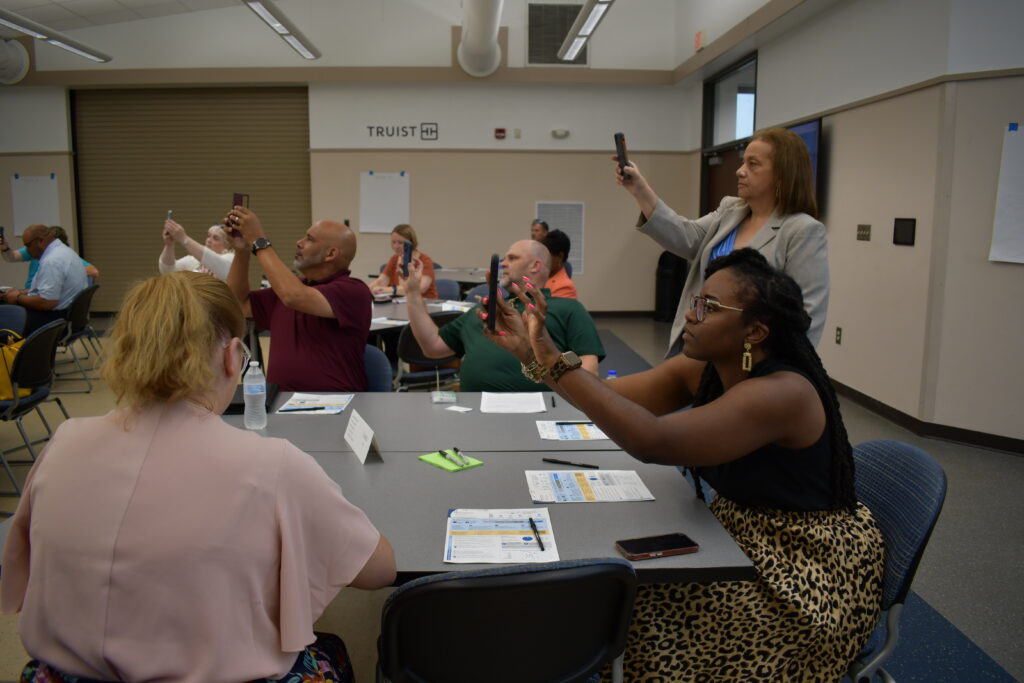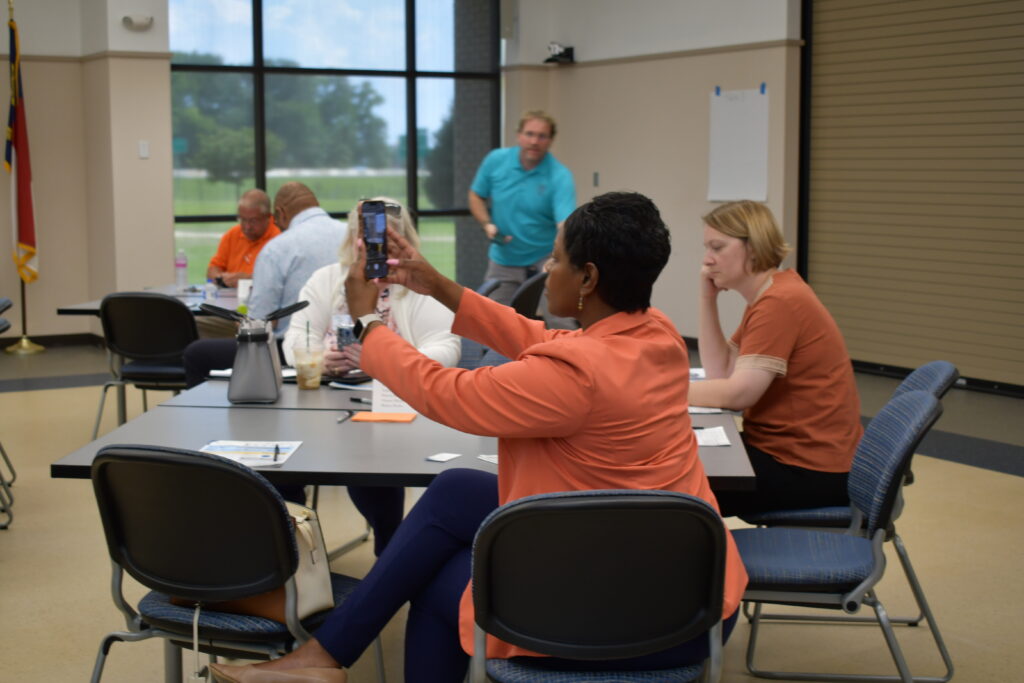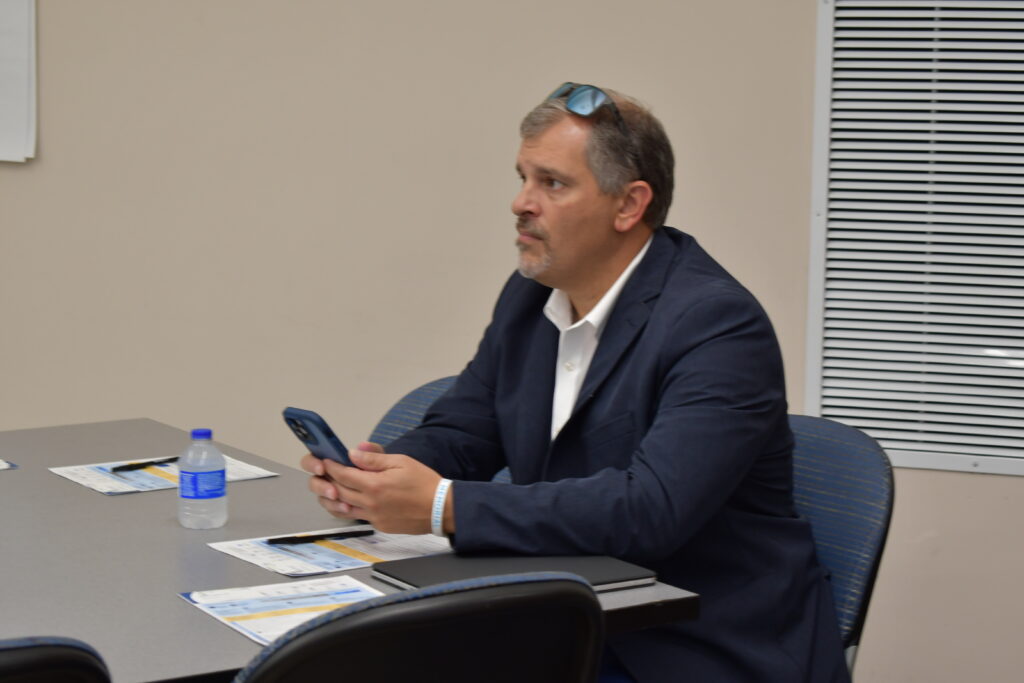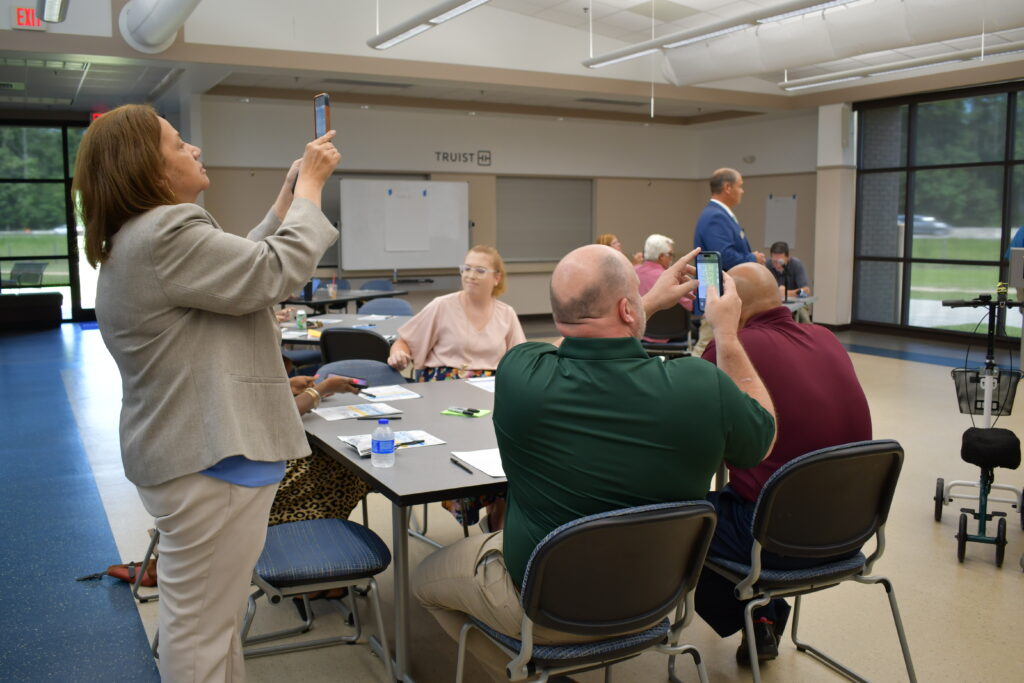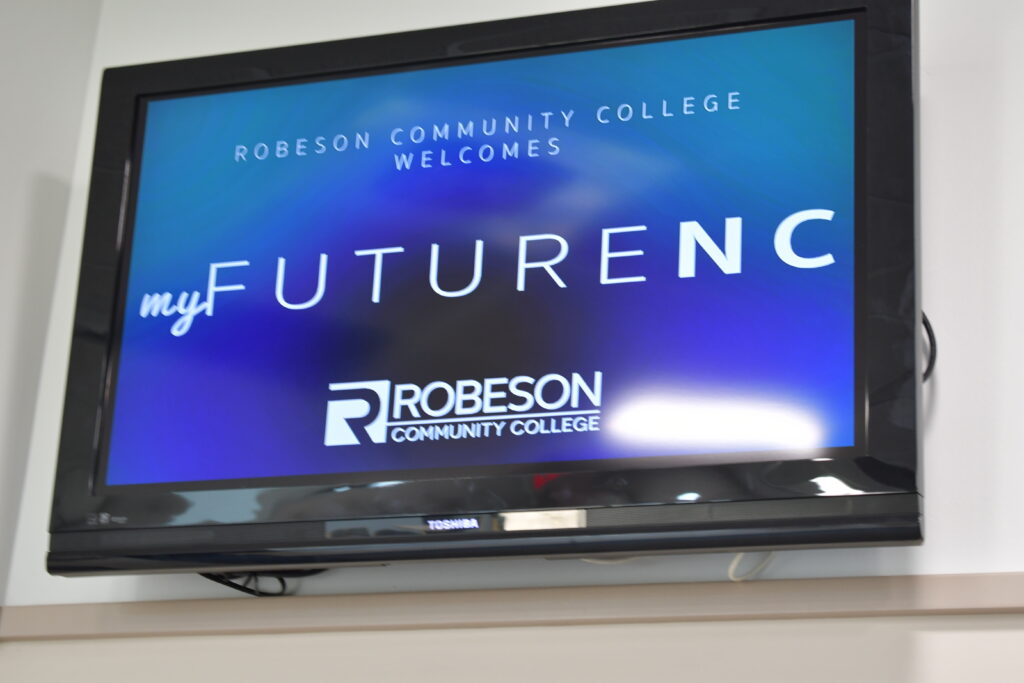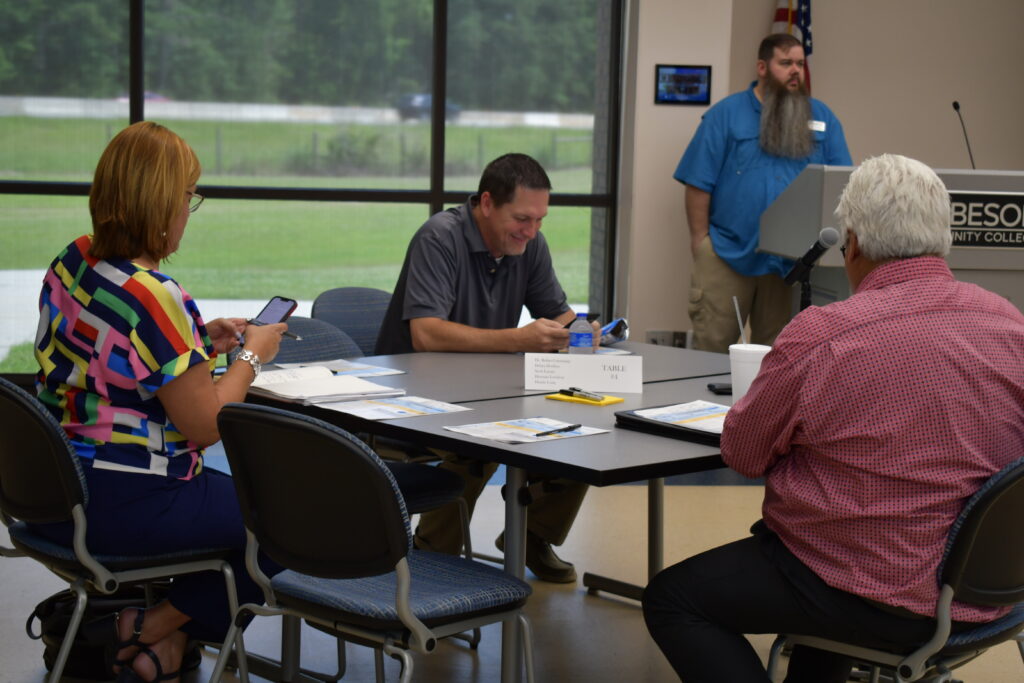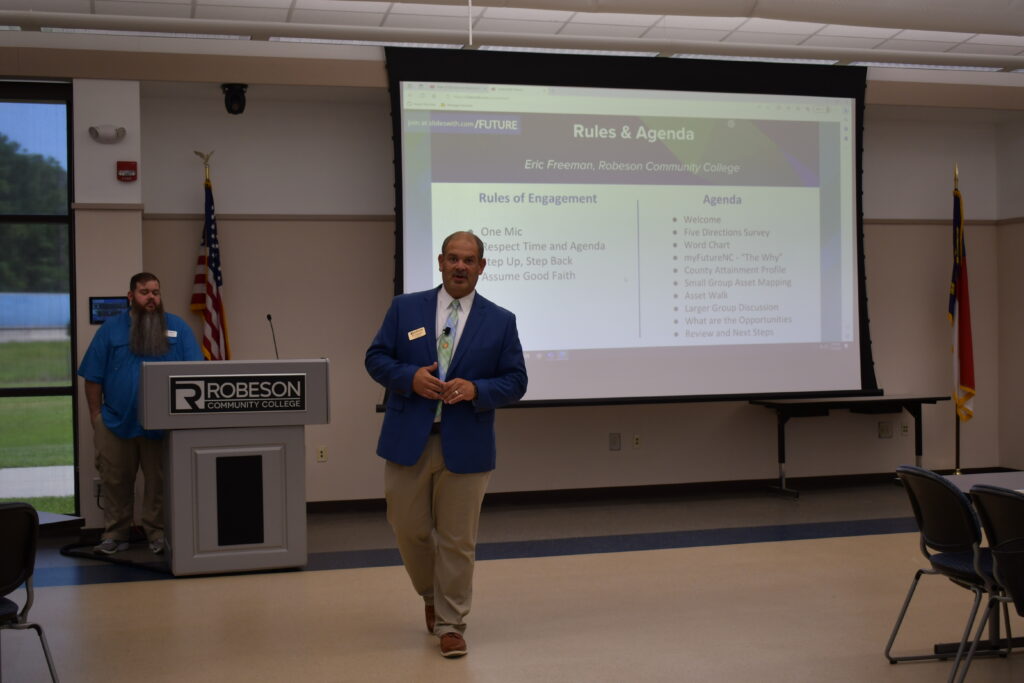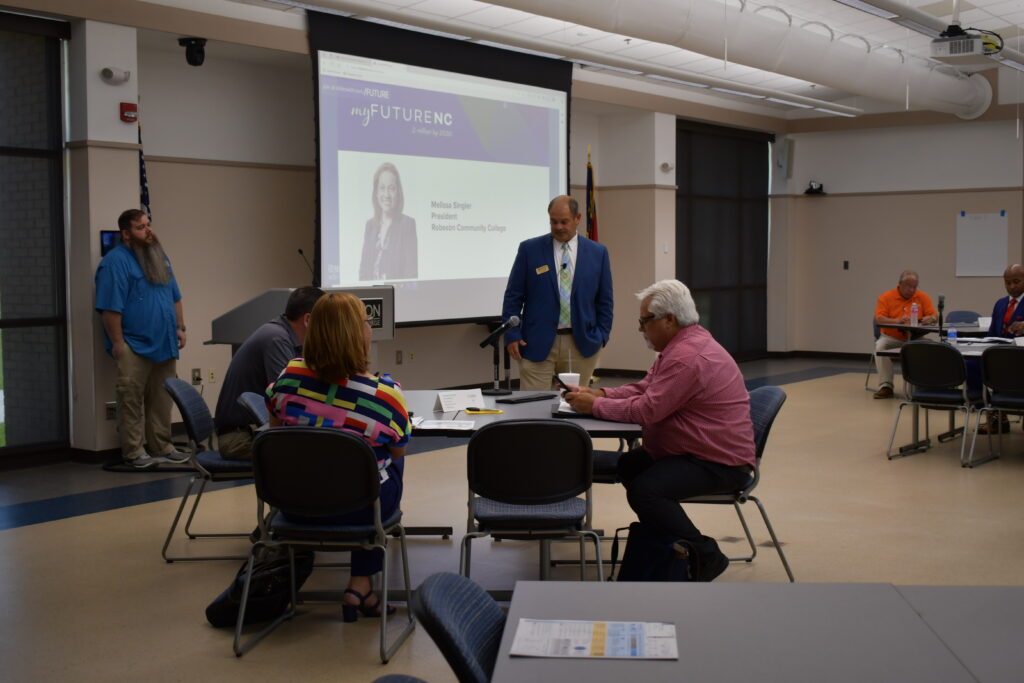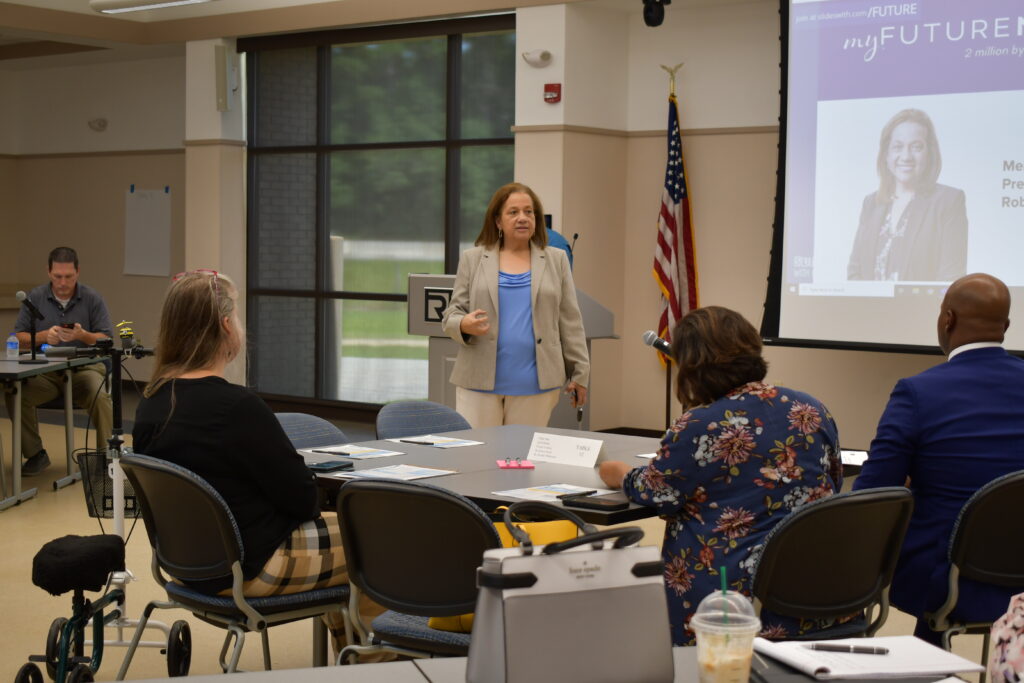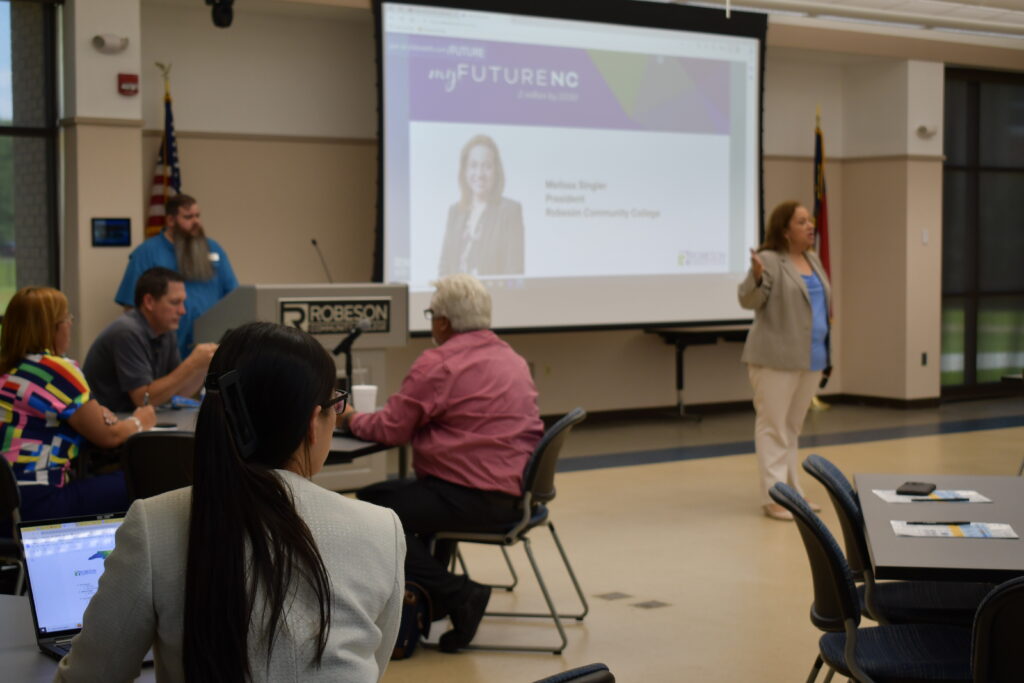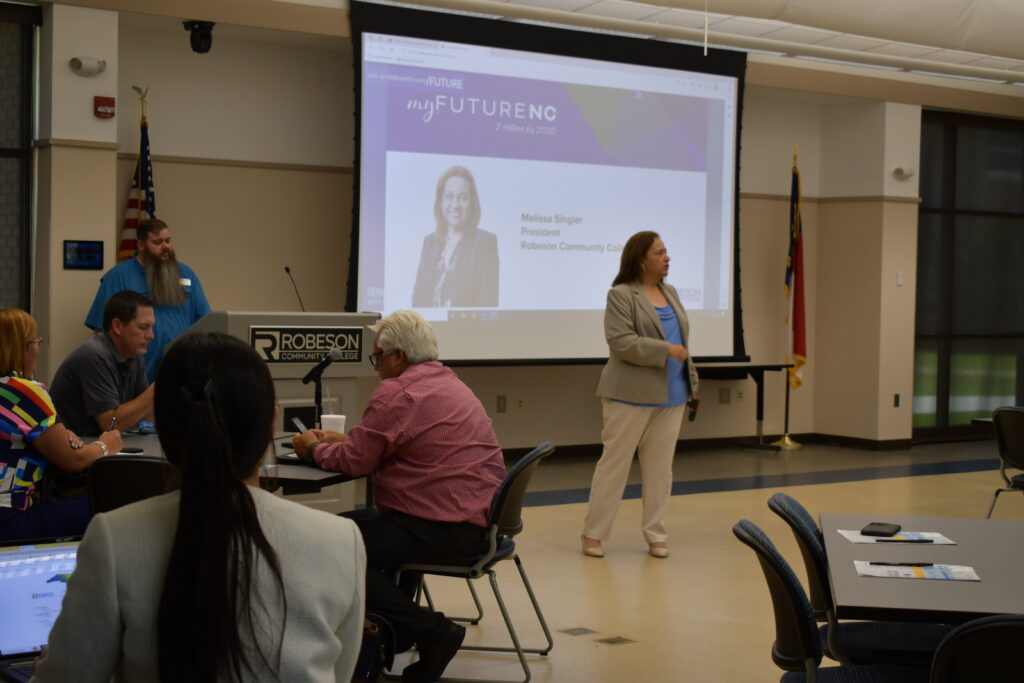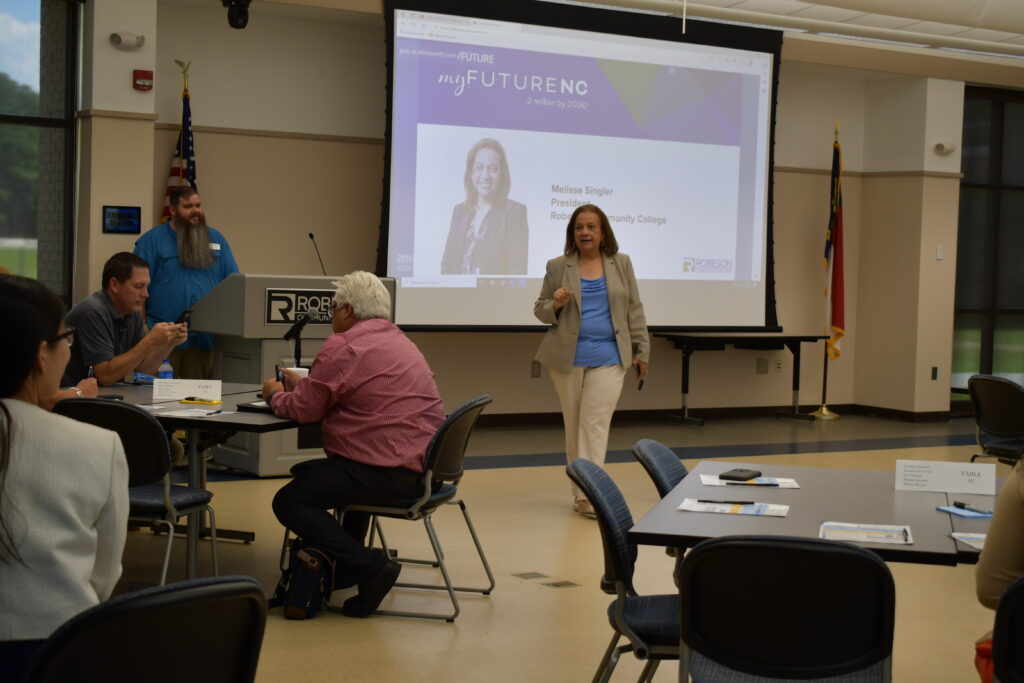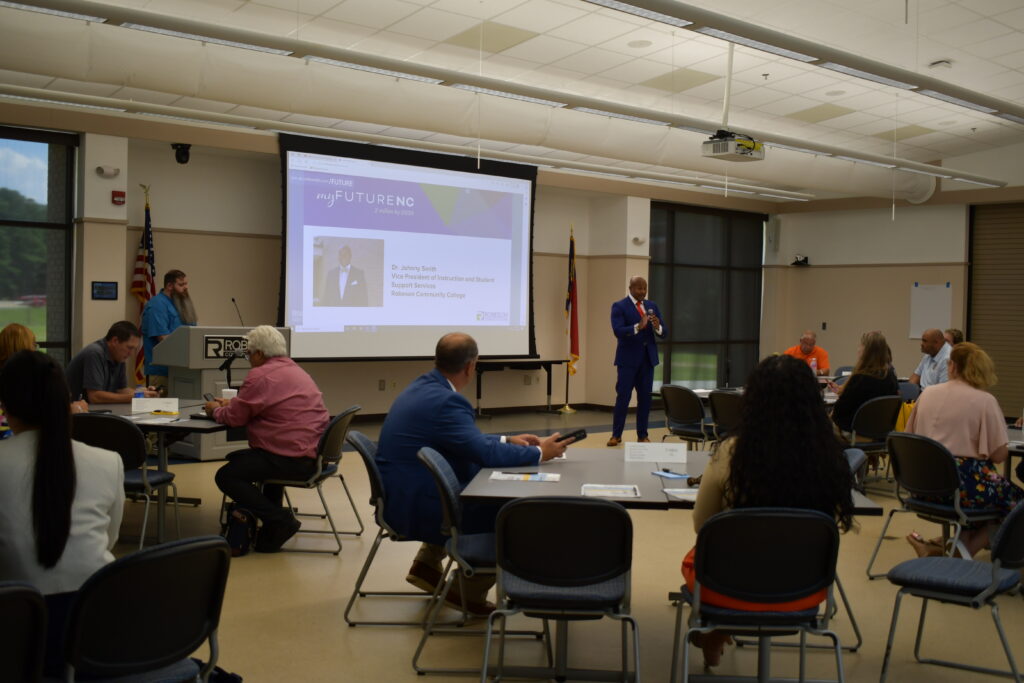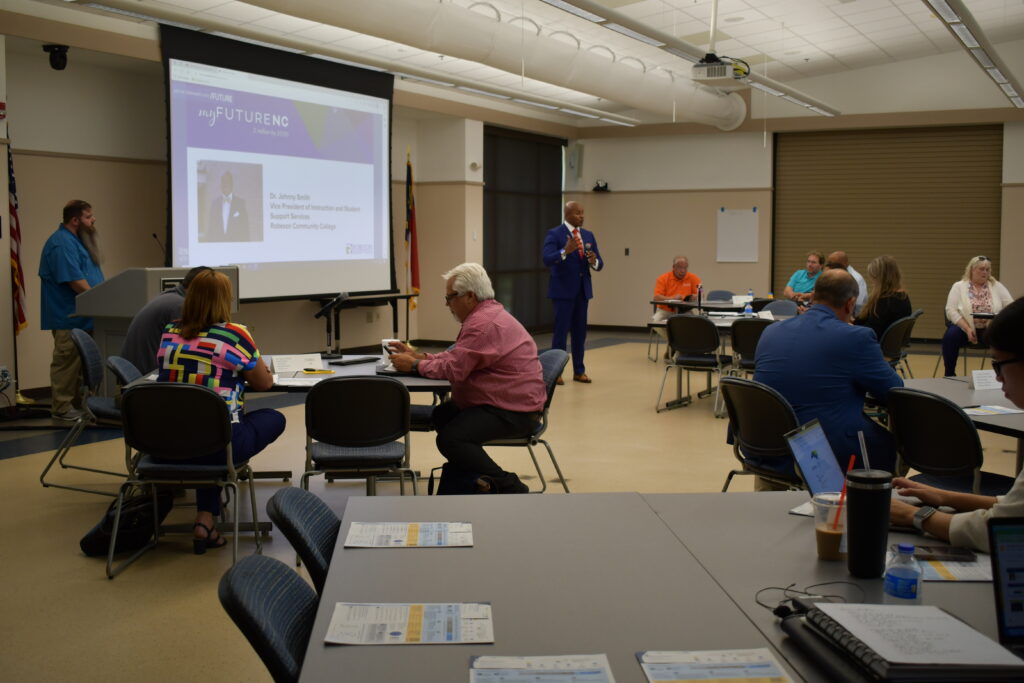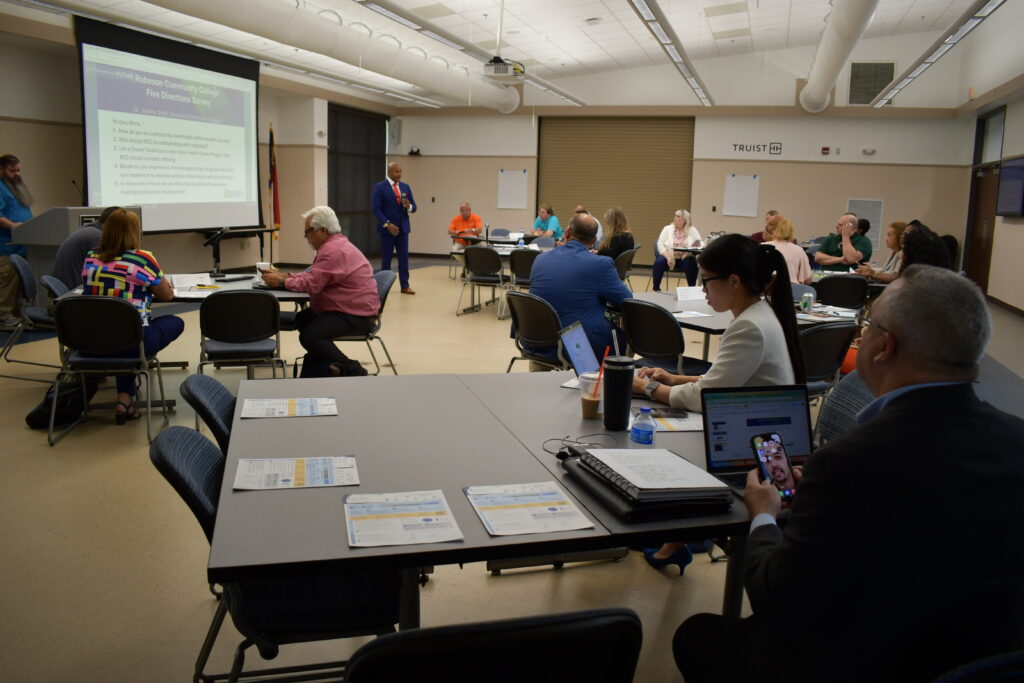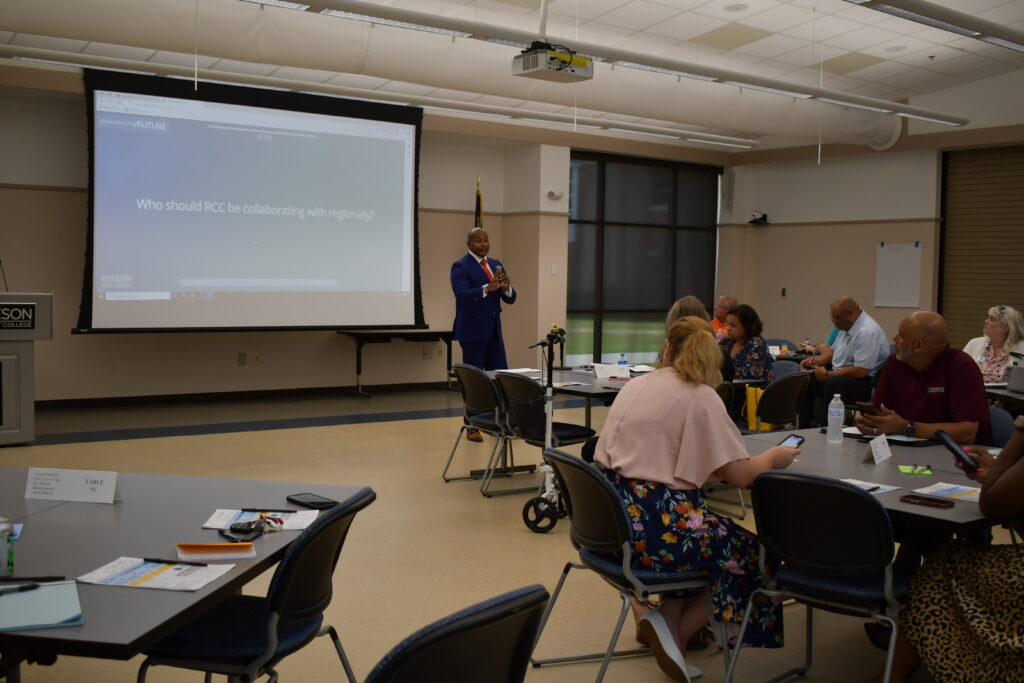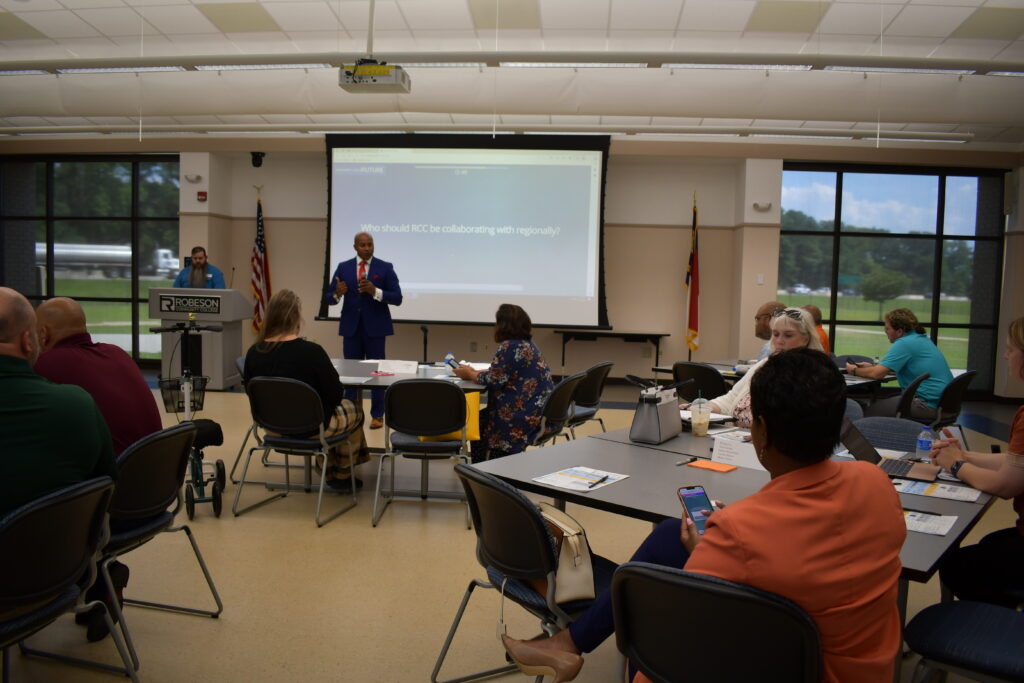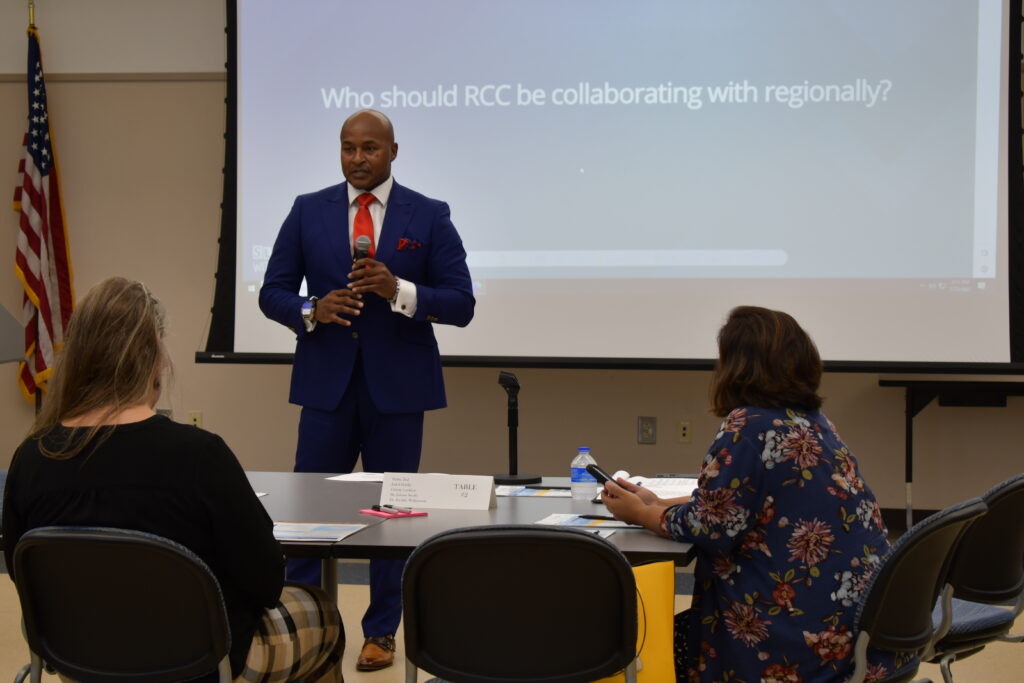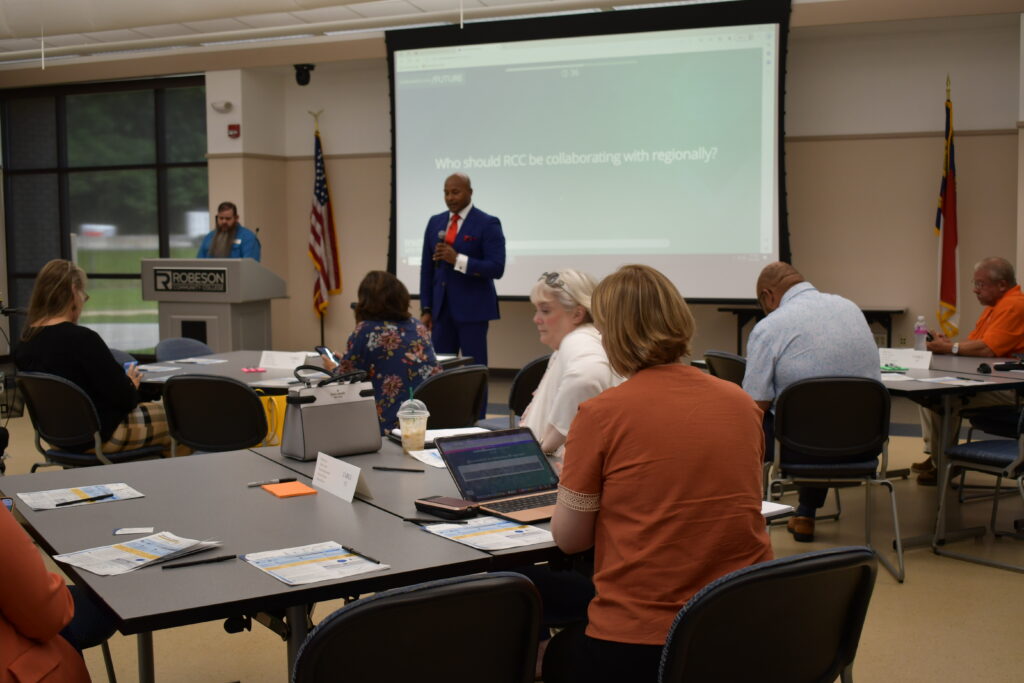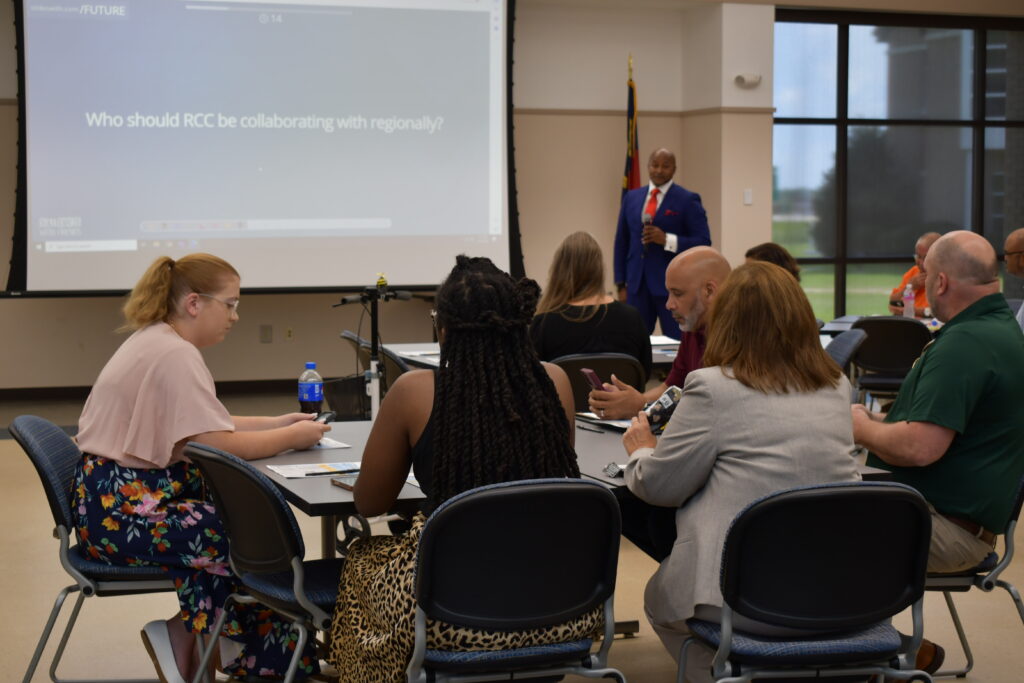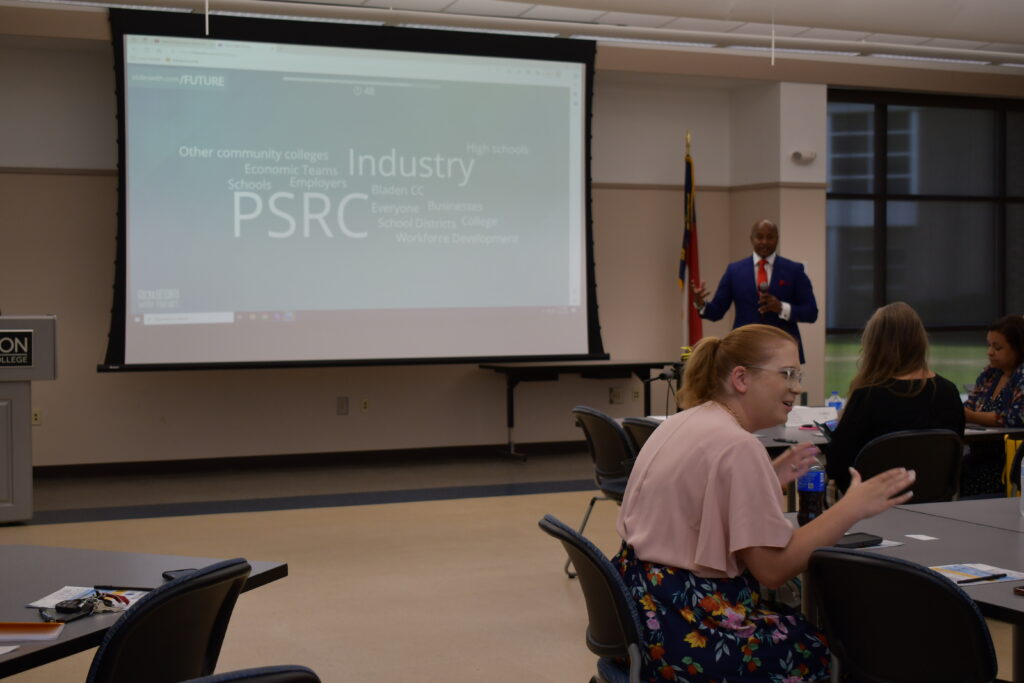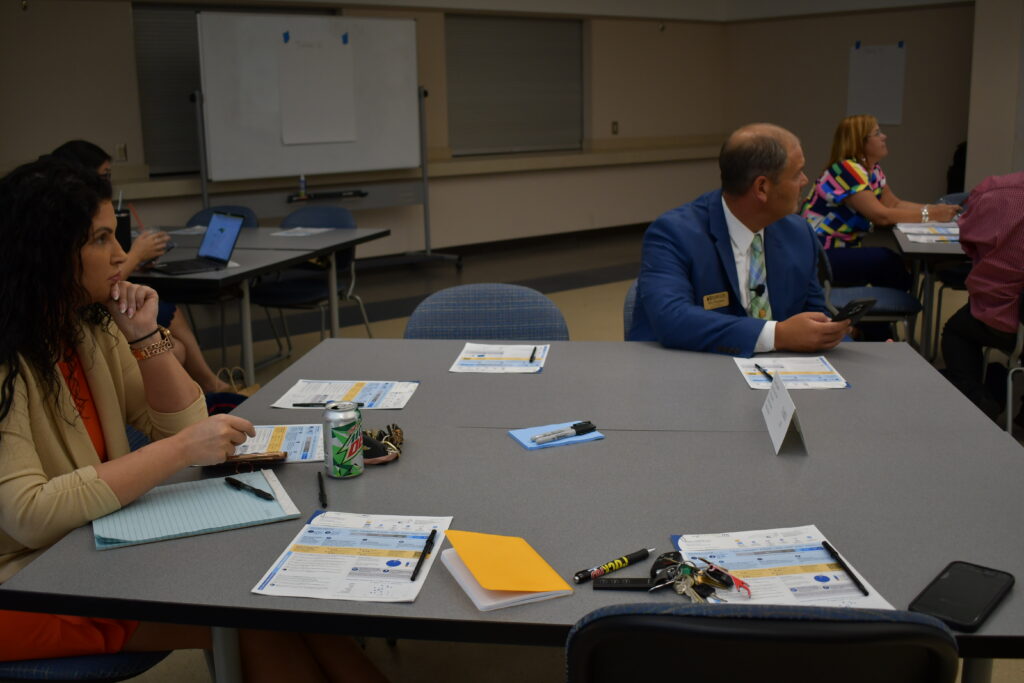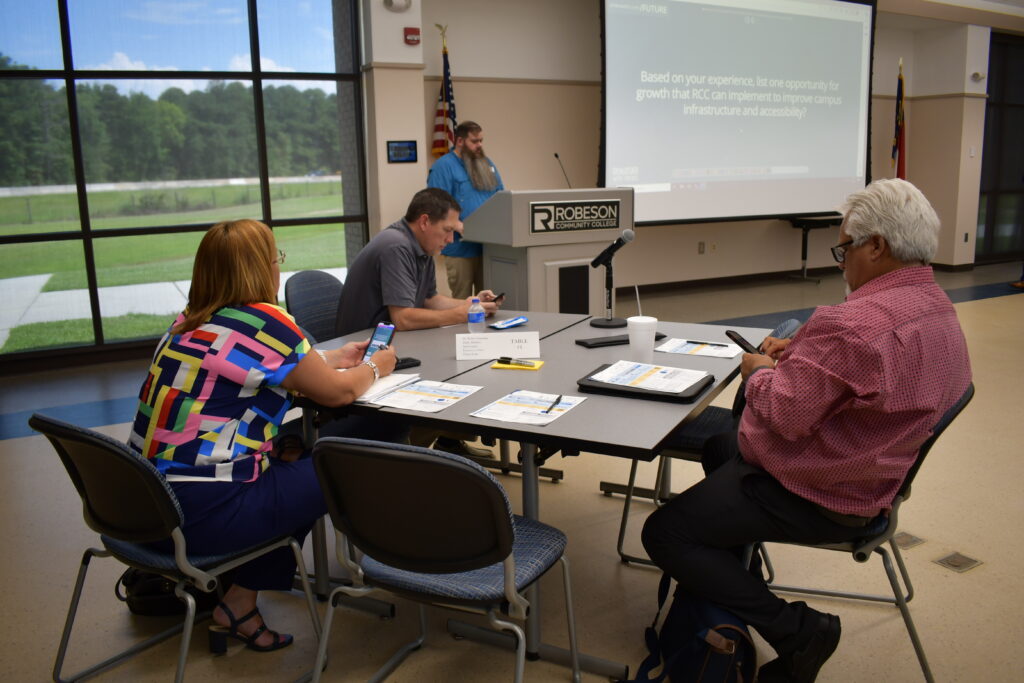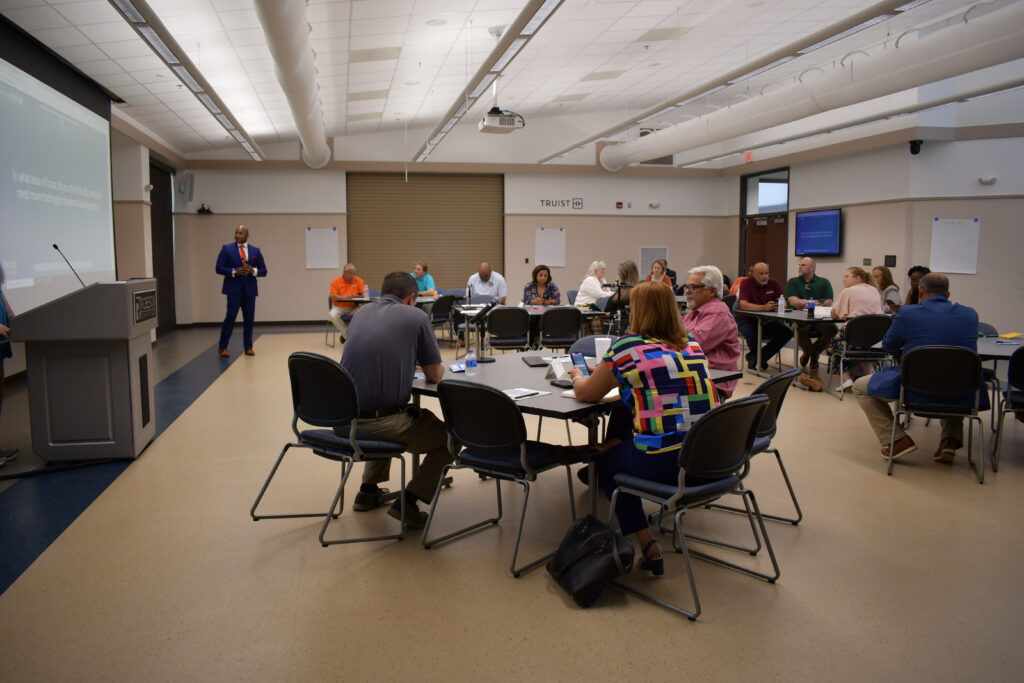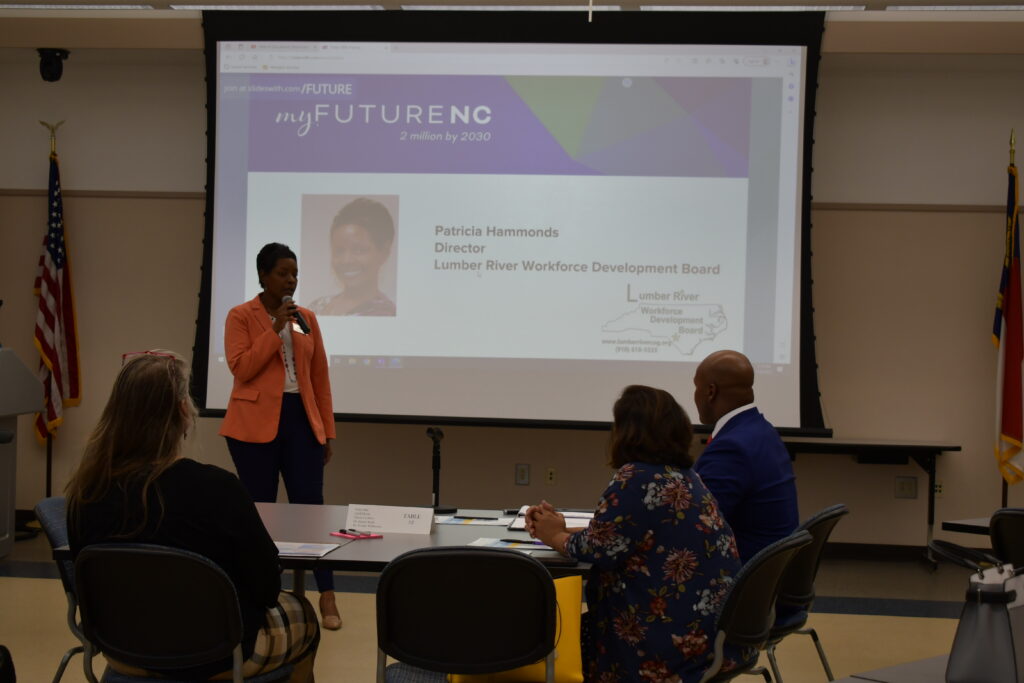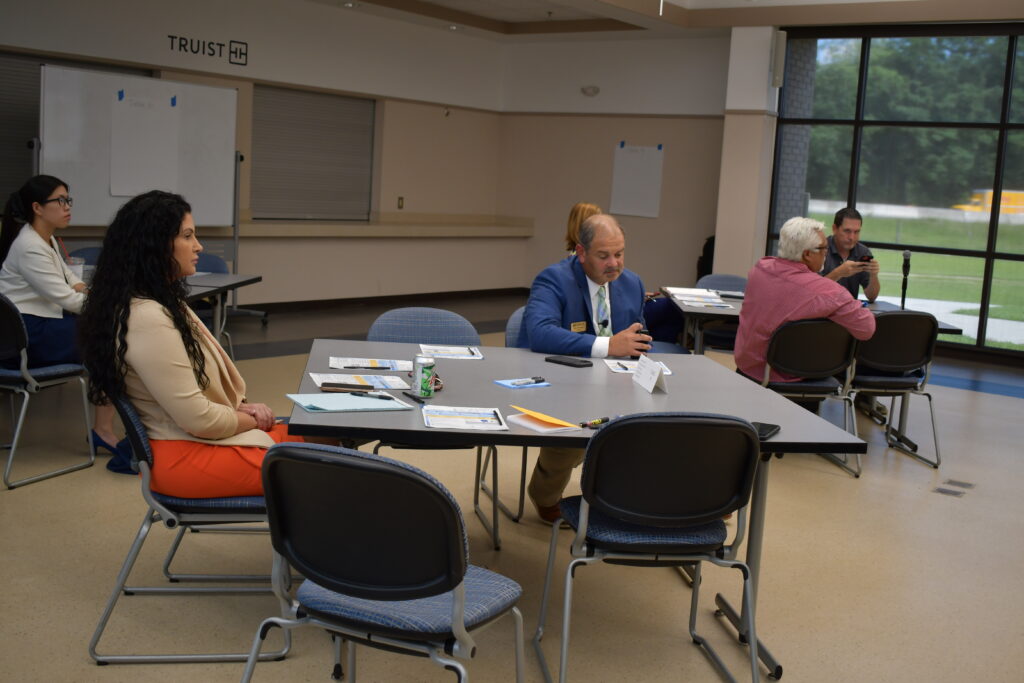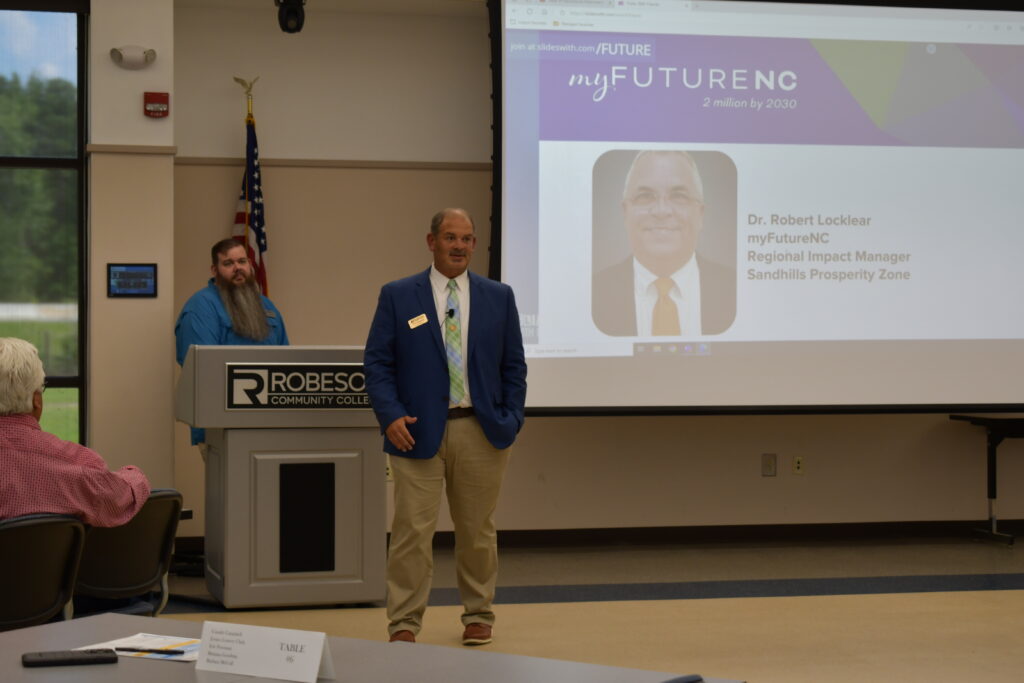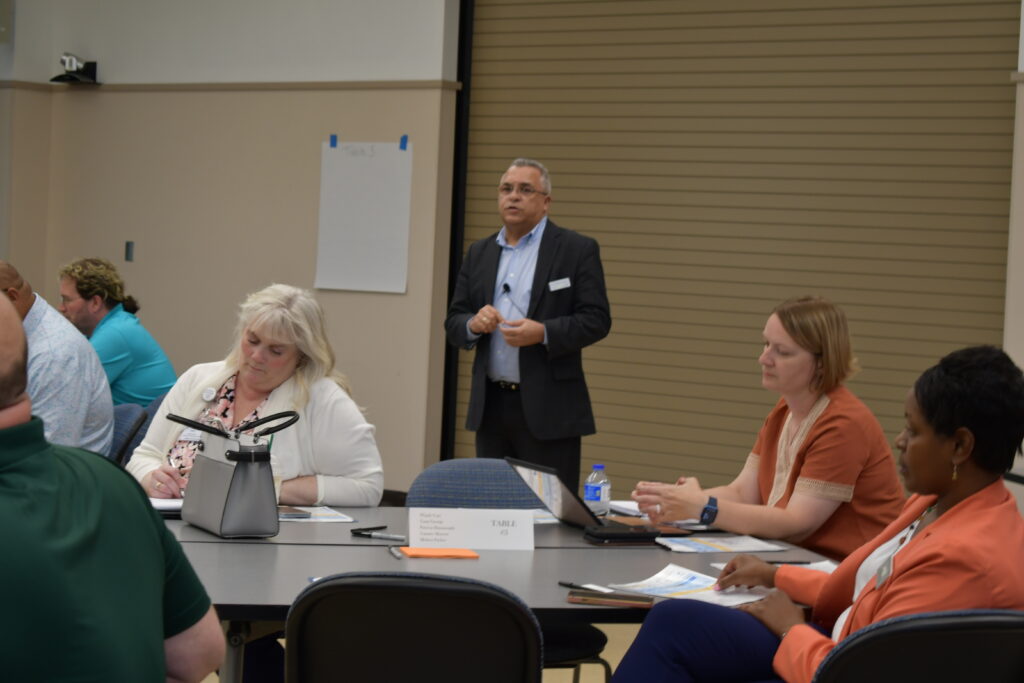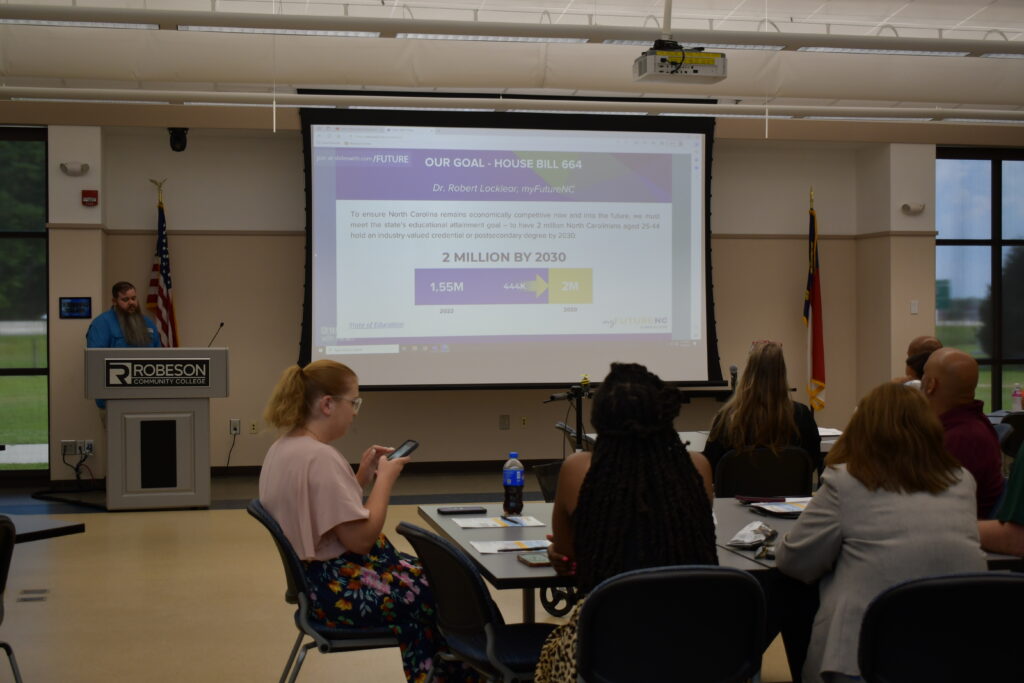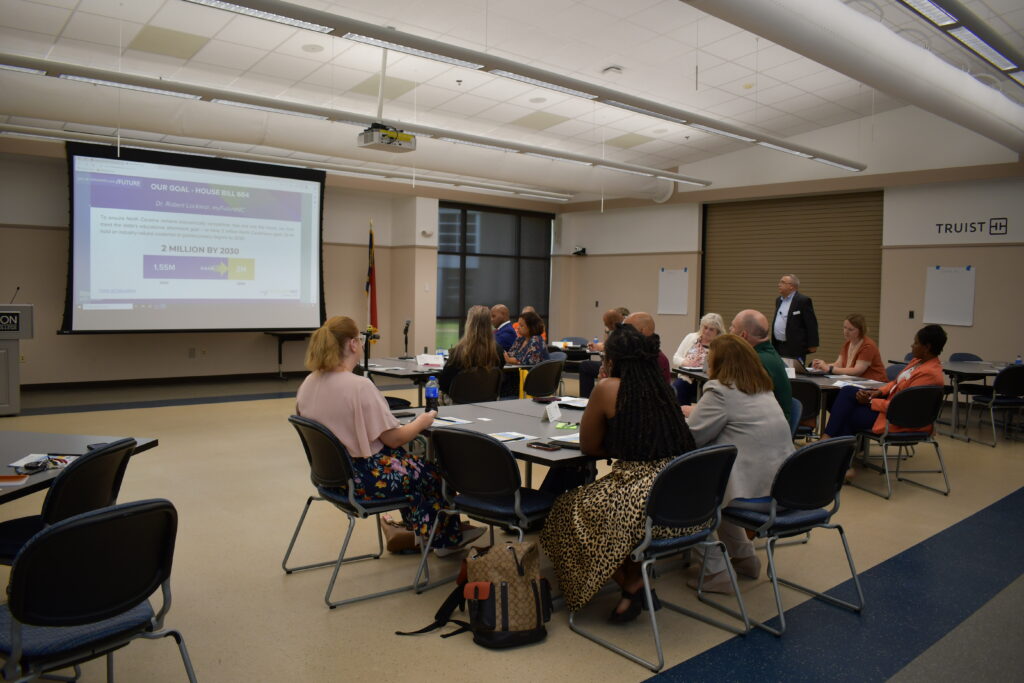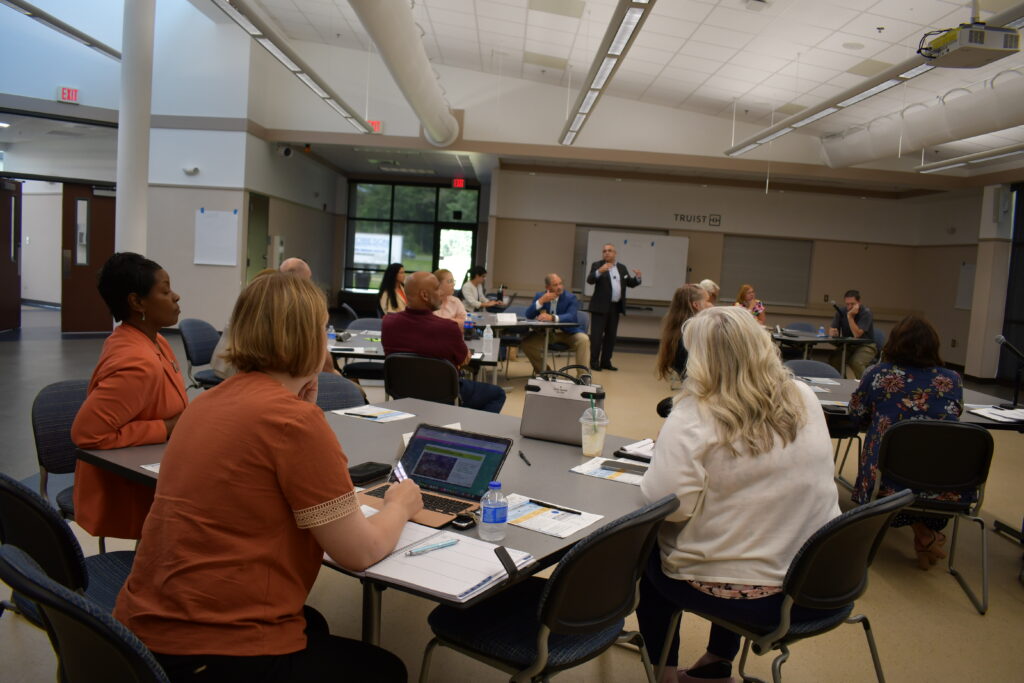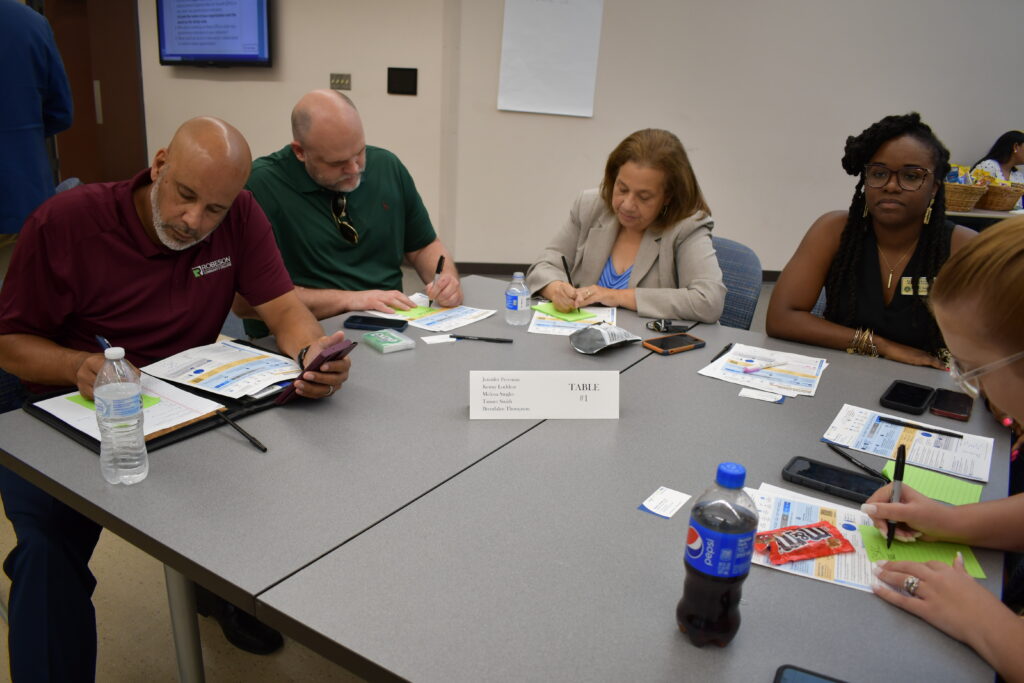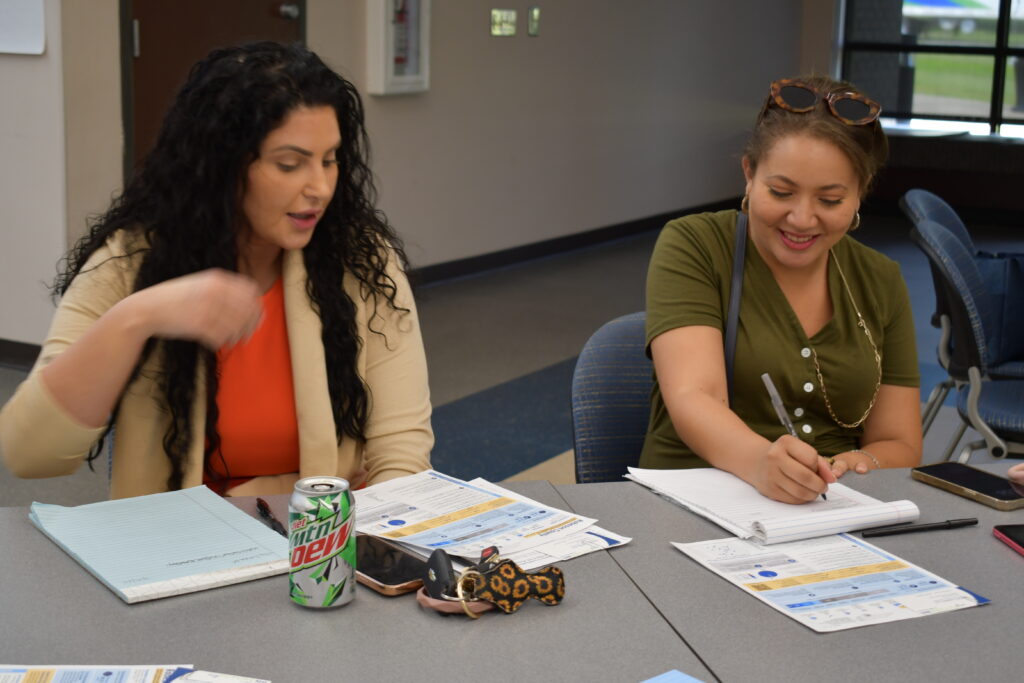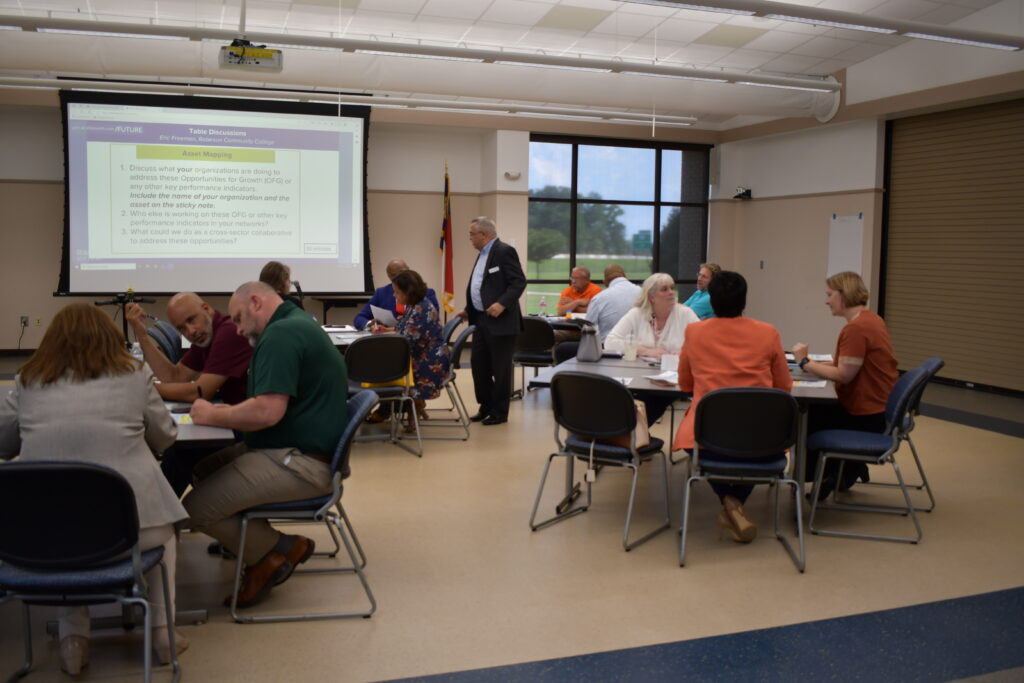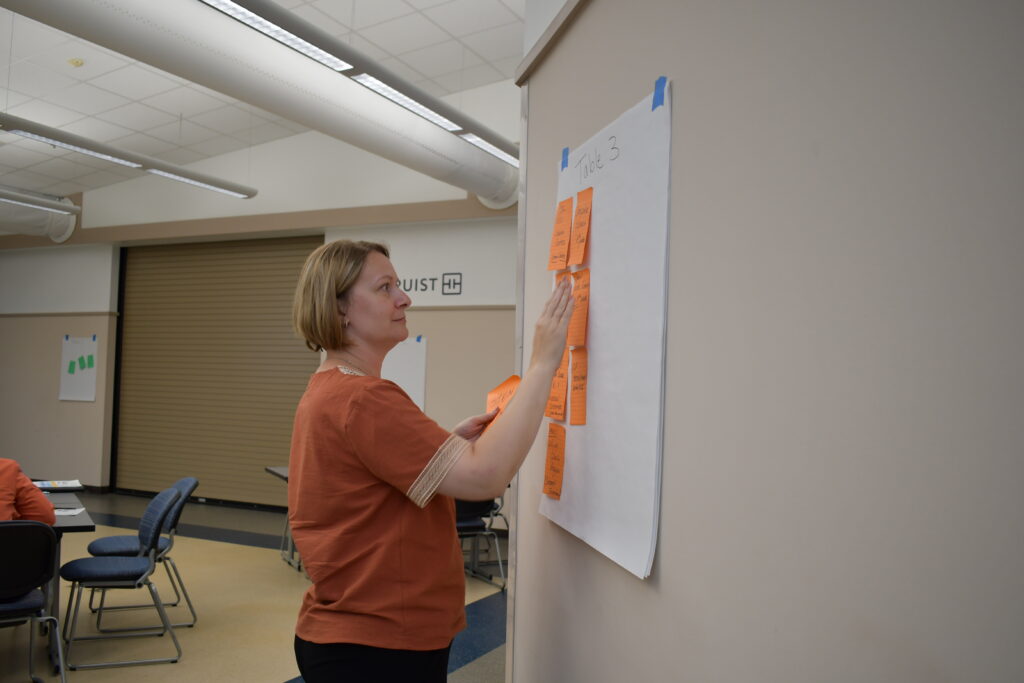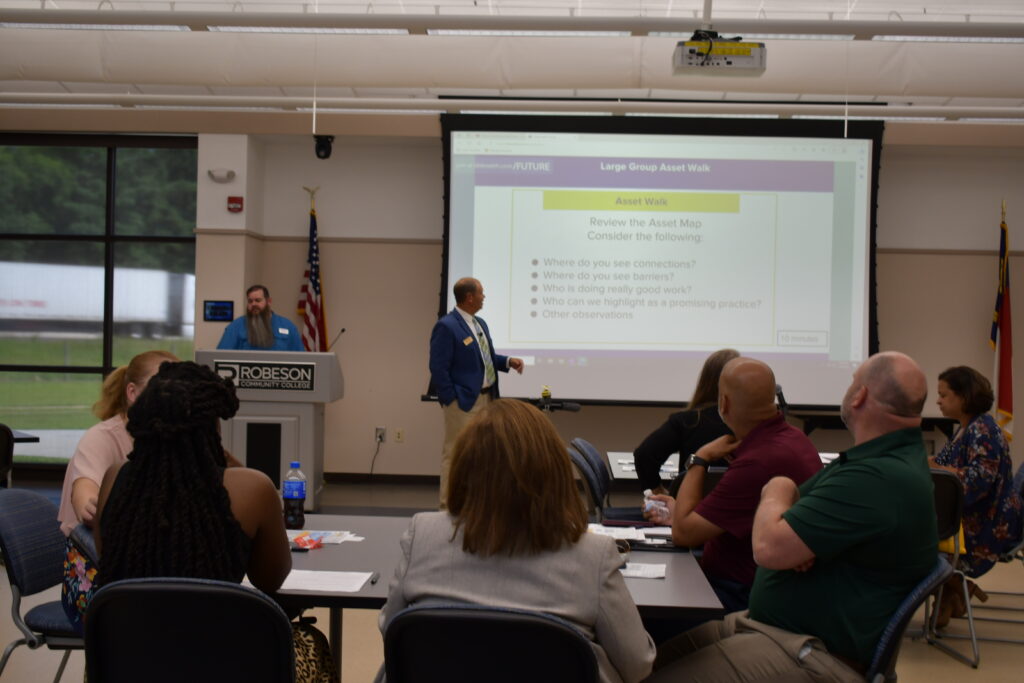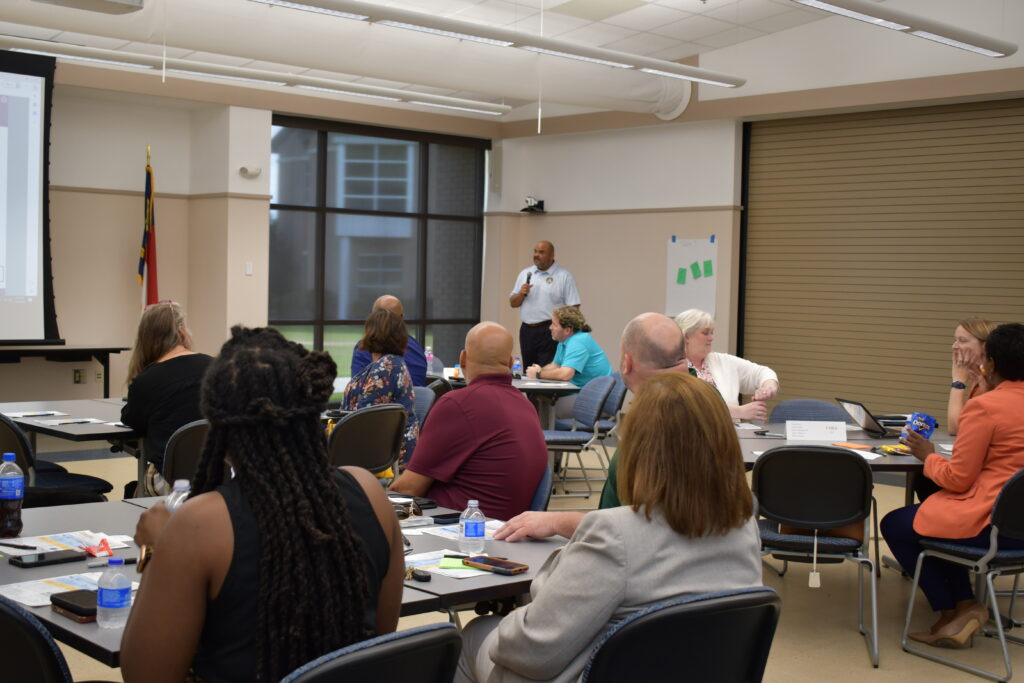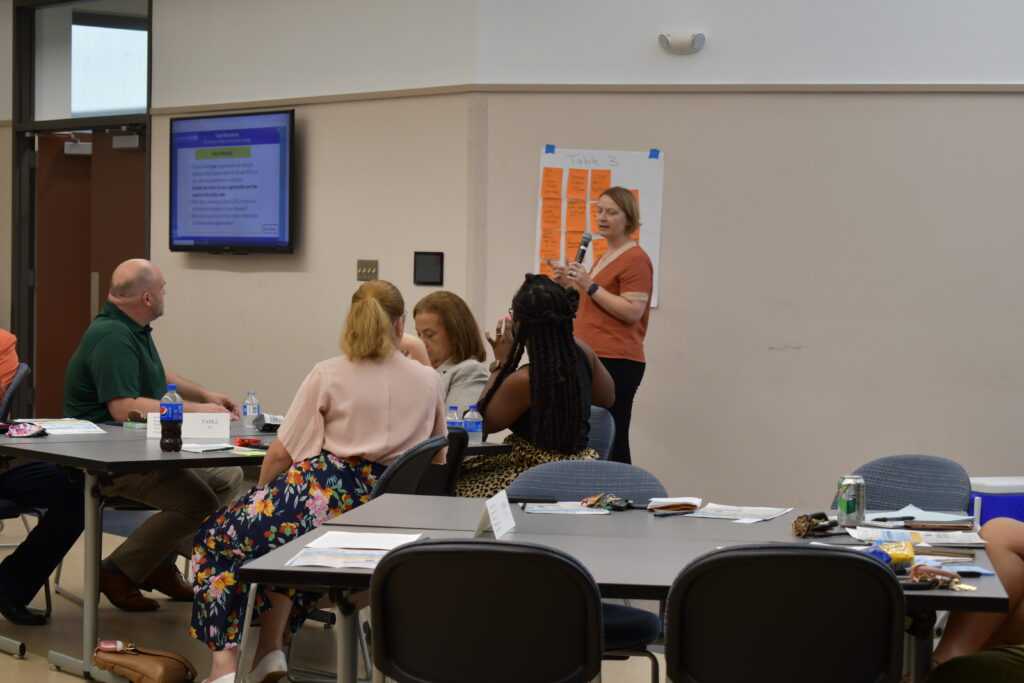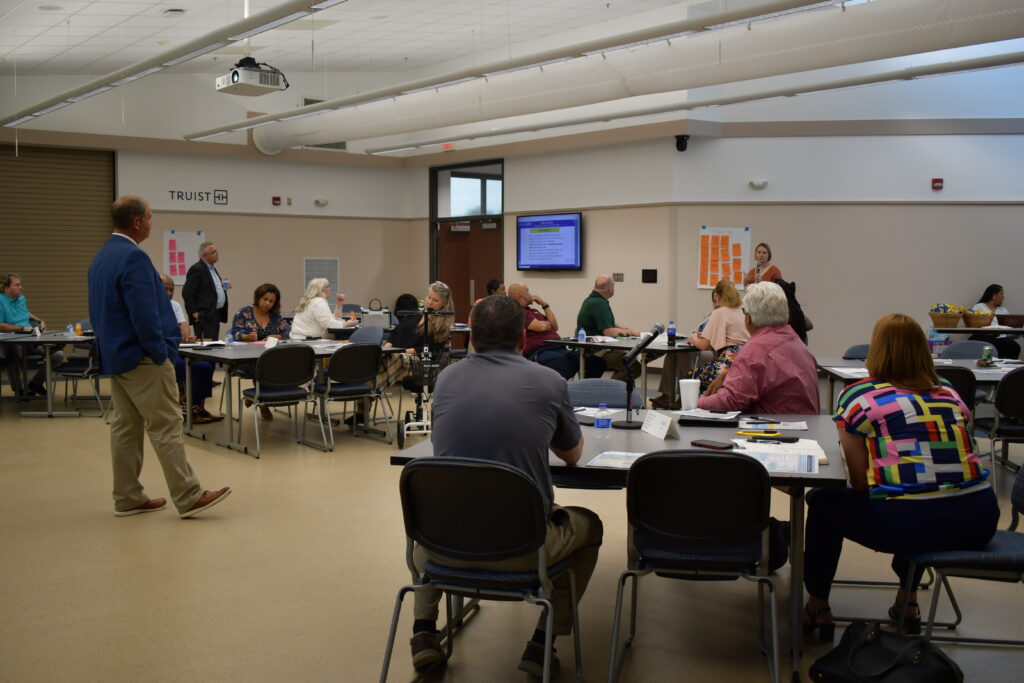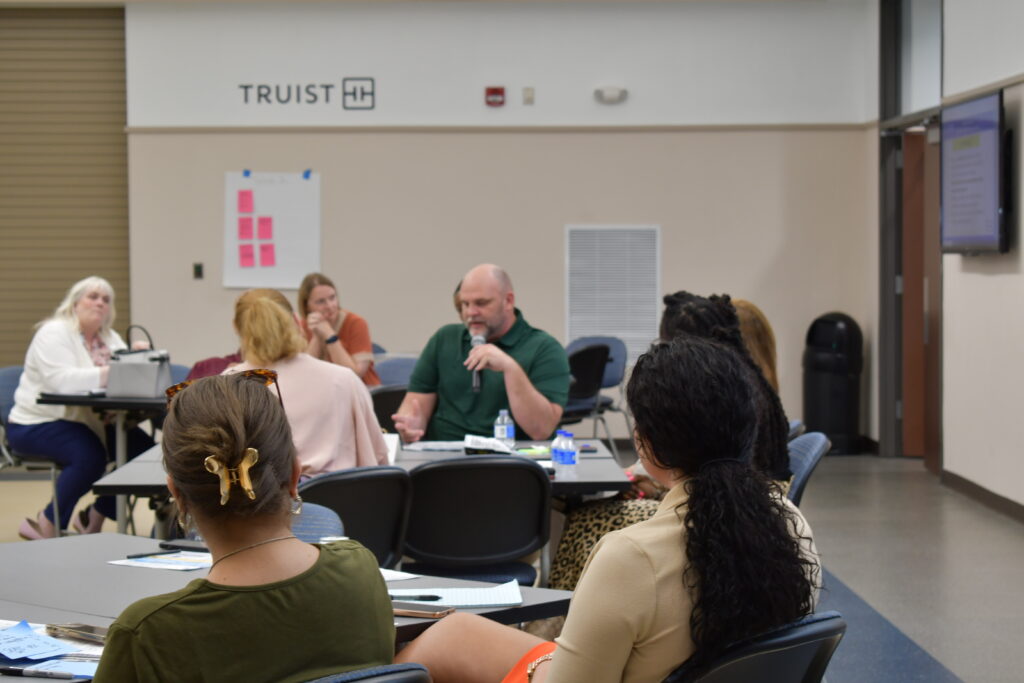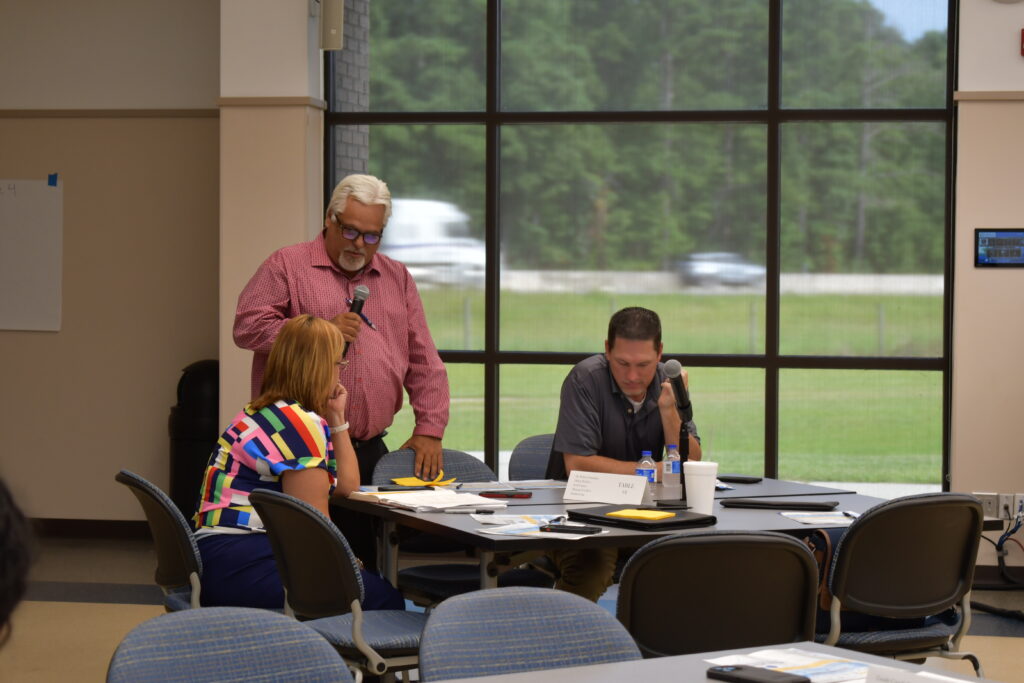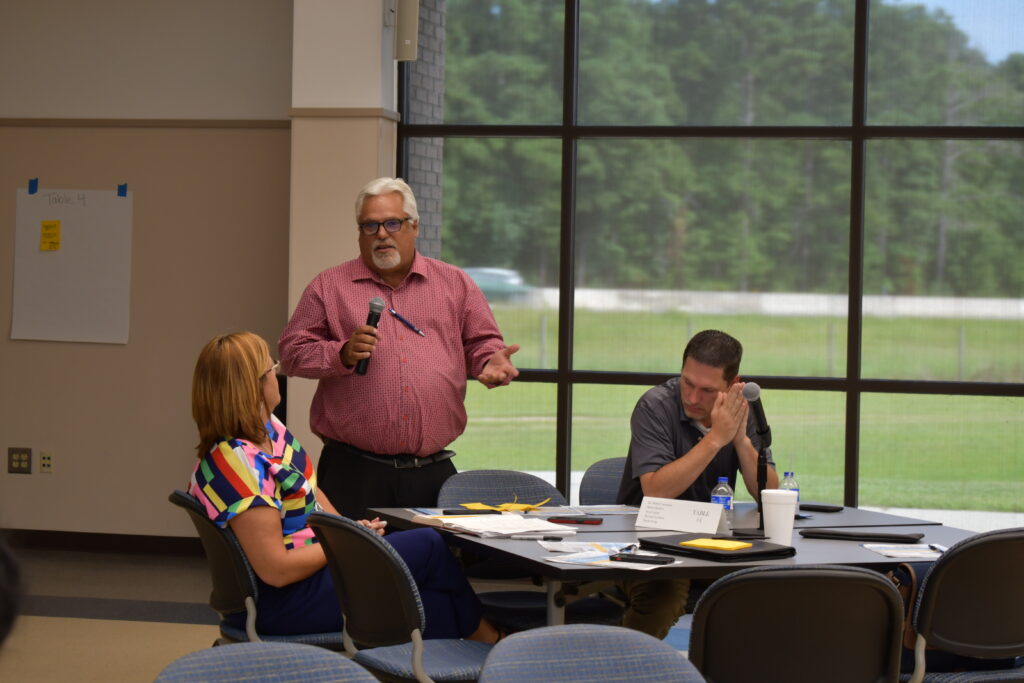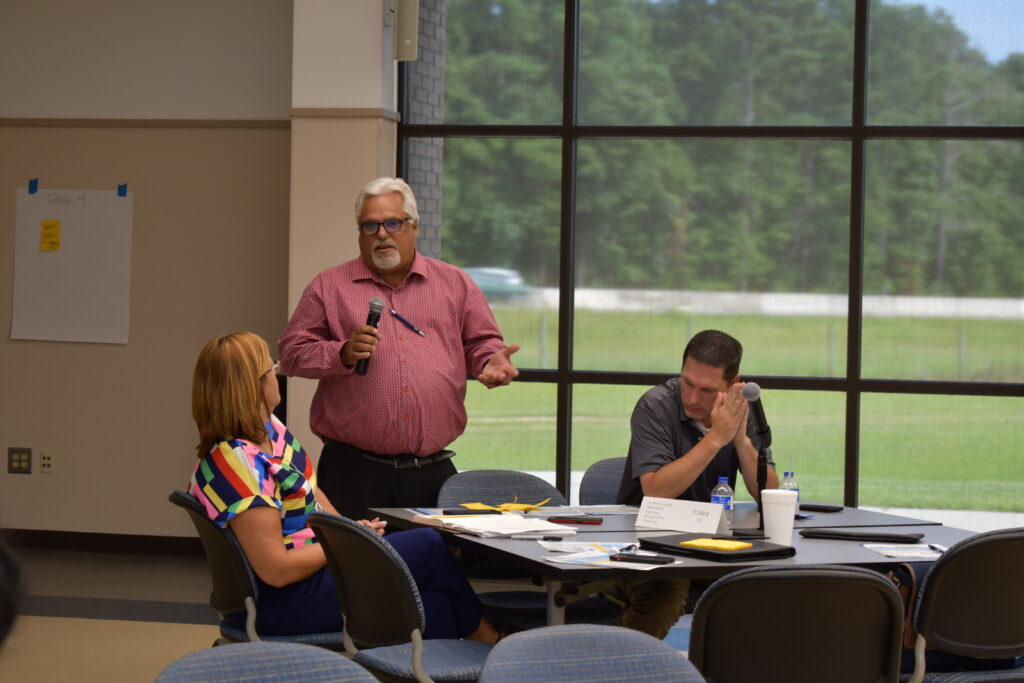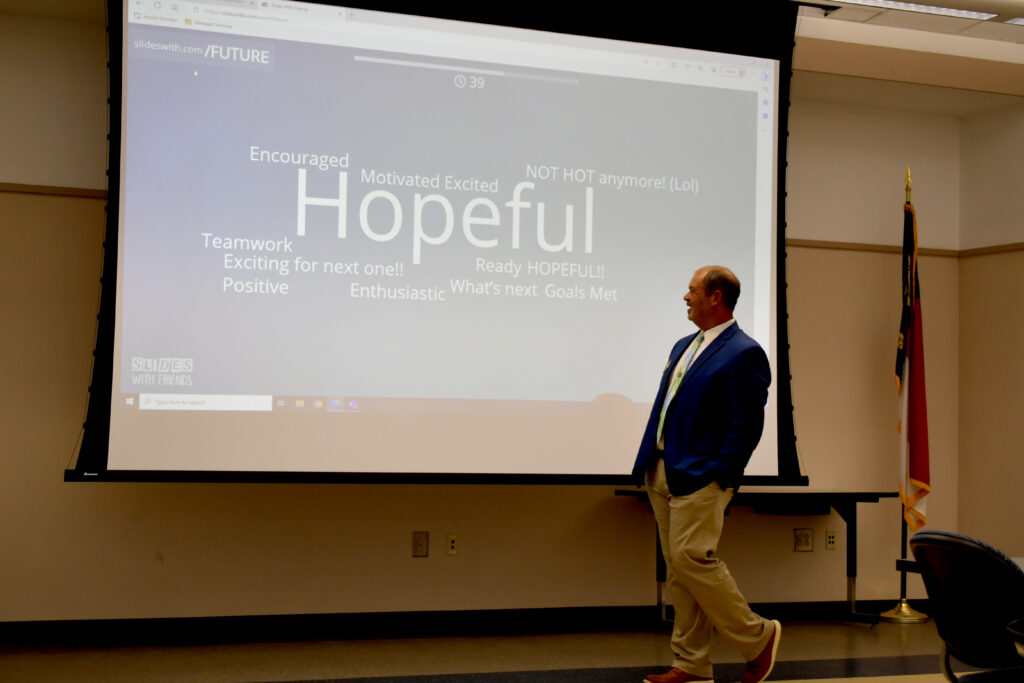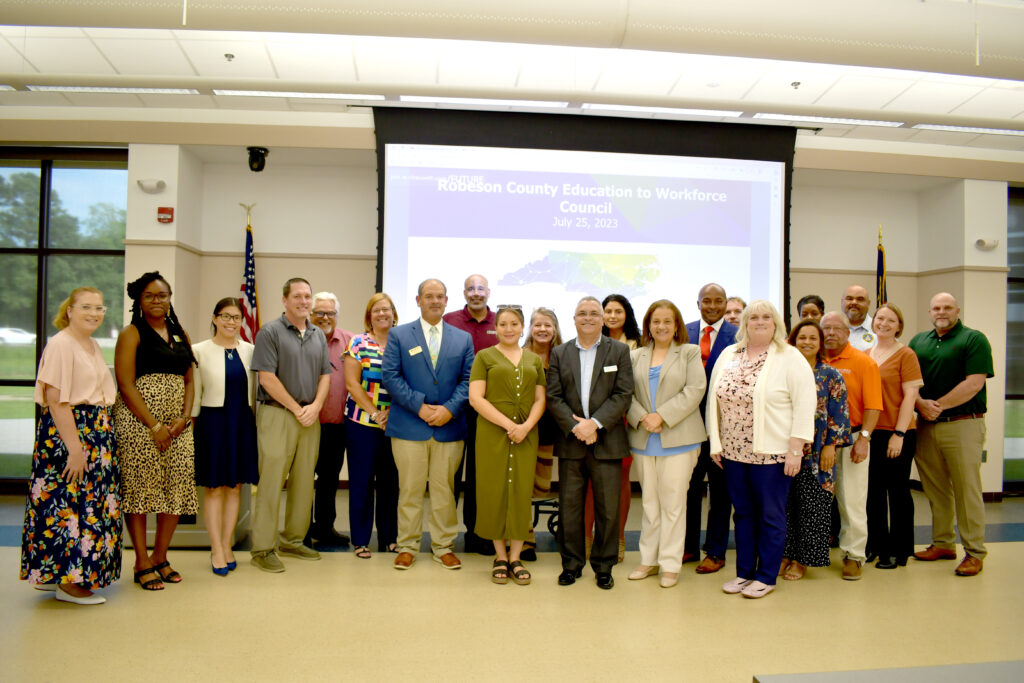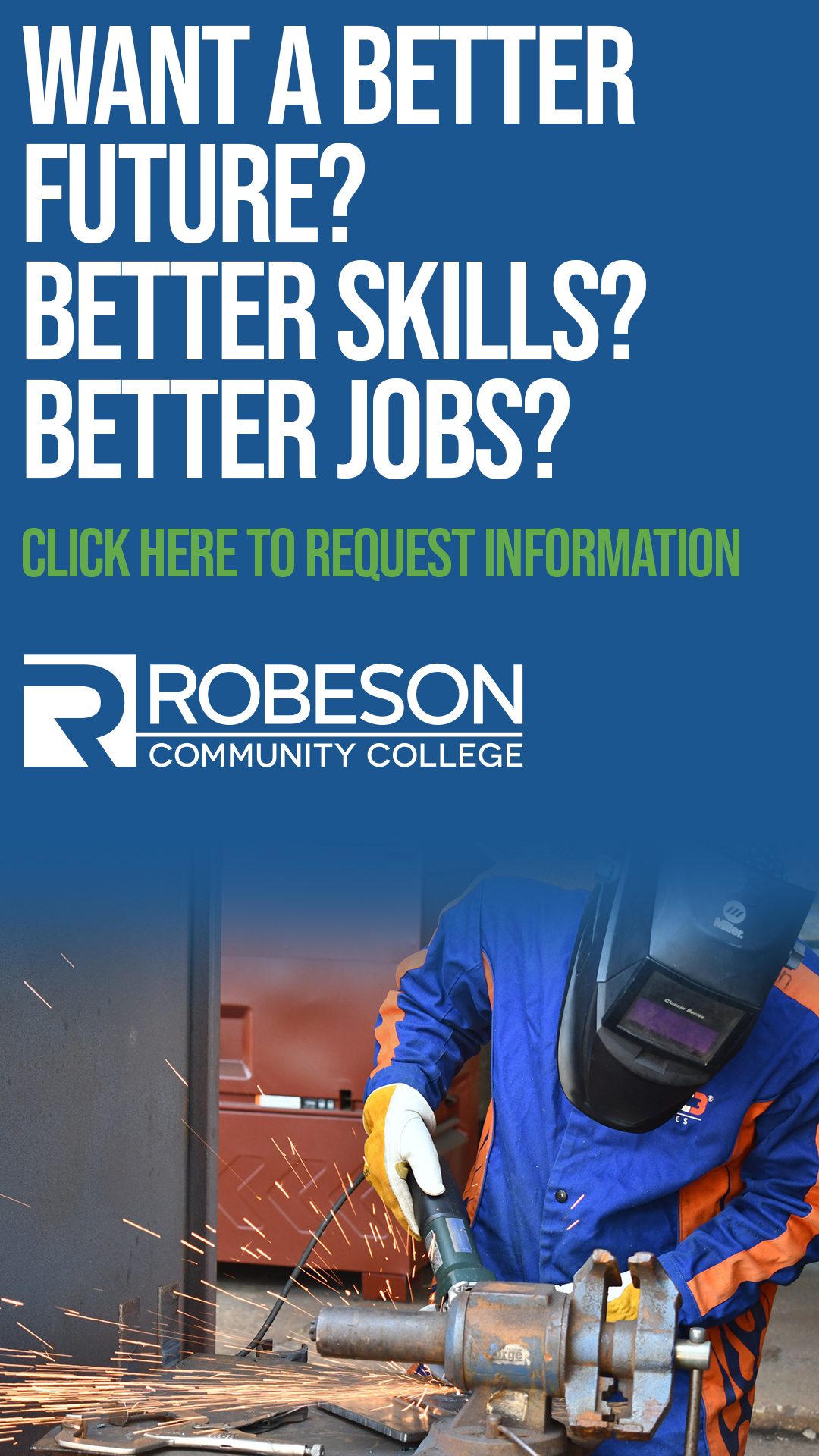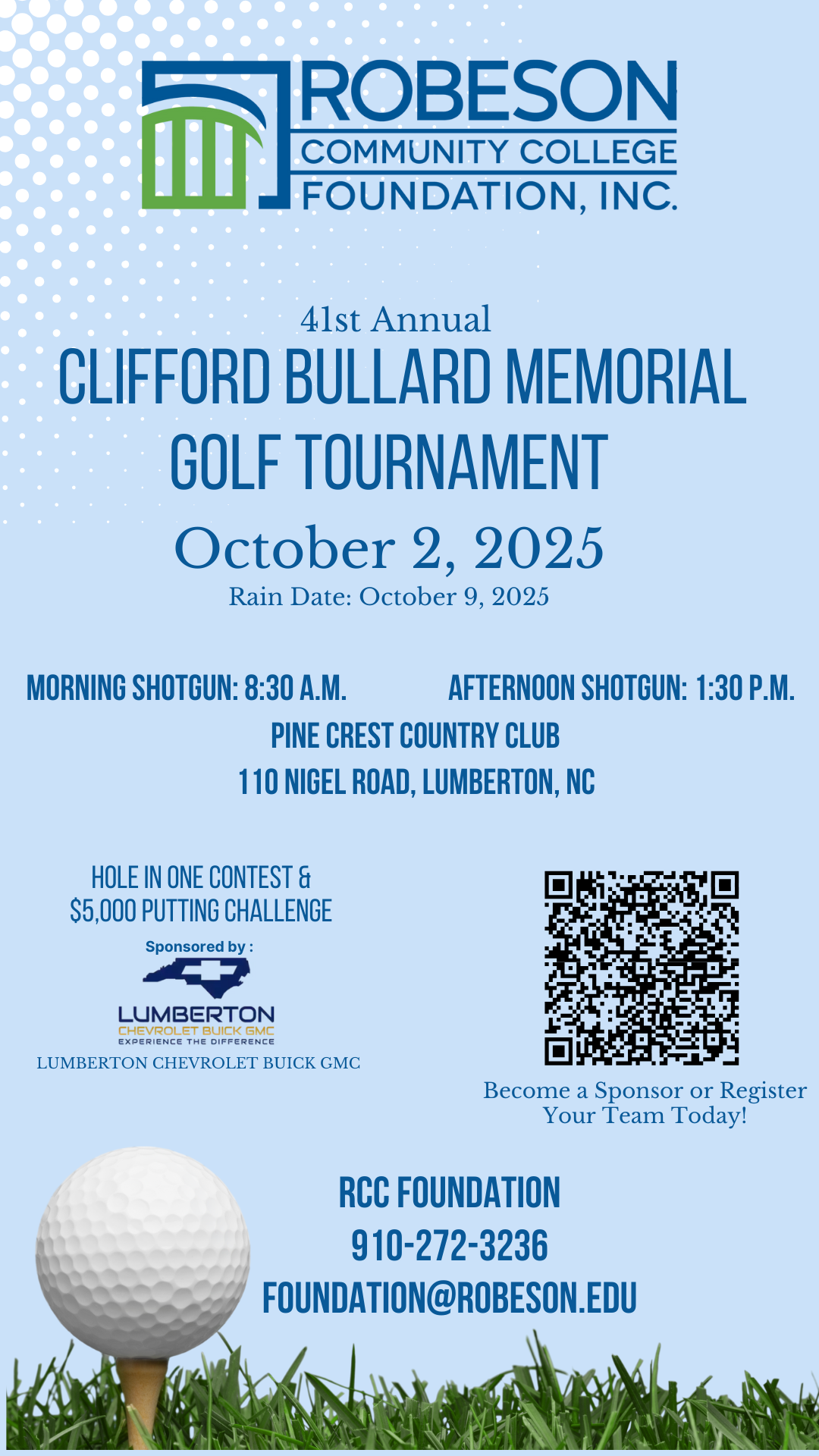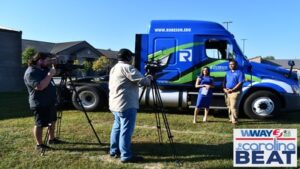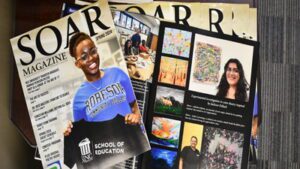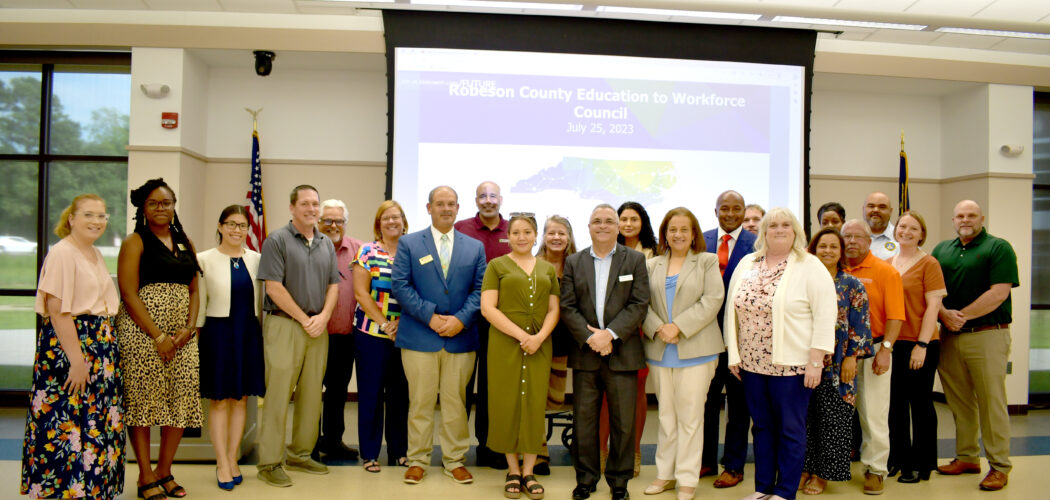
RCC hosts myFutureNC for attainment goal planning session
“Hopeful” is how attendees walked away feeling from the myFutureNC meeting recently held at Robeson Community College.
RCC hosted myFutureNC last week for an attainment goal planning session. The State of North Carolina has set a goal of 2 million residents attaining a post-secondary degree or credential by 2030. myFutureNC is working with business leaders, organizations, colleges, and school systems on the local level, county-by-county, to make this goal a reality.
“Thank you for coming today,” RCC President Melissa Singler told those in the meeting. “This is important work. What you are doing here today is going to help us map out not only the direction for the college, because we are in our strategic planning process, but it is also going to help us, help the state reach that attainment goal of 2 million adults by 2030.”
During the meeting, RCC leaders led the group in participating in a word cloud initiative that would help the college in its strategic planning, as Eric Freeman, the Vice President of Workforce Development, Continuing Education, and Institutional Services called it, “an interactive piece built into the presentation to get back good feedback.”
“Who should RCC be collaborating with regionally?” asked Dr. Johnny Smith, the Vice President of Instruction and Student Support Services.
As members of the meeting typed a word into their phones, it was quickly discovered that PSRC was the top choice. Industry, other community colleges, and employers were other recommendations.
“List a career, technical or short-term health career program that RCC should consider offering that we don’t already,” was another question asked.
The screen lit up with responses, which included dental assistant, peer support specialist AI, home healthcare and nursing, and nuclear medical technical were among the top suggestions.
Employability was the top choice for how community stakeholders define student success at Robeson Community College, which resonated with the purpose of the meeting, to get more people back in the workforce and more credentials in the hands of people to become gainfully employed.
“We all know there is a labor shortage and there is a skills gap that we are tasked with making up and everyone in this room, whether you are in business and industry, government, we all have a part to play in that,” Singler said. “If you’re non-profit, with an agency, your involvement in this is critical, we cannot do this without you.”
“The work that we are talking about today is what we do every day for workforce development,” stated Patricia Hammonds, director of the Lumber River Workforce Development Board. “This is very important to us, myFutureNC is a big deal and we do the work every day to make sure we are providing the resources our students and our community needs with everything they are trying to do.”
So, what can Robeson Community College and Robeson County do to reach the goal set by myFutureNC?
“North Carolina is the leader when it comes to businesses and industry,” stated Dr. Robert Locklear. “How do we get them here in Robeson County, that is what we have to stay focused on and all the great things happening in our education system with our three major partners, the public schools, community college, and university…. That’s how you get those businesses to come when you get that education to where it needs to be, they want to move in and that’s the direction we are headed in.”
During Locklear’s presentation, he said there are 2373 jobs that are open up now in Robeson County based on the job report from April.
“We have the jobs available,” Locklear said. “We just need the capacity; we need to make sure they have the skills.”
“It is a marathon, not a sprint,” Locklear said. “It’s going to take time… we still have a lot of work to do in the next seven years.”
